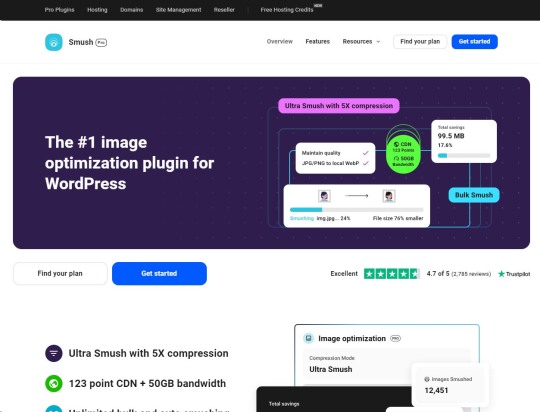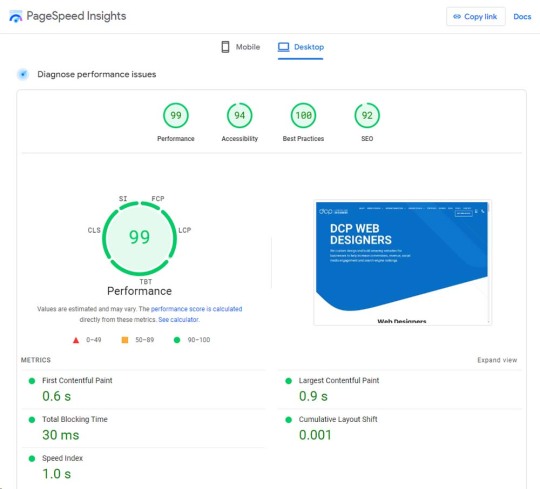#CDN SiteGround
Explore tagged Tumblr posts
Text
Pourquoi SiteGround est un Hébergeur Web Incontournable en 2024 ?
L’hébergement web est au cœur de la réussite en ligne, et SiteGround reste une option de premier plan pour 2024. Grâce à une combinaison de technologies de pointe, de sécurité avancée et de simplicité d’utilisation, cet hébergeur se distingue dans un marché compétitif. Voici pourquoi SiteGround pourrait être la solution idéale pour vos besoins numériques cette année. 1. Des Performances Inégalées…
#avis SiteGround#CDN SiteGround#dissimulation WordPress#hébergement cloud#hébergement mutualisé#hébergement rapide#hébergement sécurisé#Hébergement web#hébergement woocommerce#hébergement wordpress#meilleur hébergeur 2024#migration site web#optimisation site web#outil pour développeurs#outils SiteGround#performances site web#plugin SG Optimizer#sauvegarde automatique#sécurité hébergement#Sécurité WordPress#site e-commerce#siteground#SiteGround pour débutants#SSL gratuit#support client 24/7#tableau de bord intuitif#tableau de bord SiteGround#vérification en deux étapes#vitesse chargement site
0 notes
Text
Comparing Wordpress Hosting in the UK
When it comes to building a website, one of the most critical decisions you'll make is selecting a hosting provider. For those seeking a platform that combines flexibility, ease of use, and scalability, **WordPress hosting in the UK** is an excellent choice. In this blog post, we will delve into various aspects of WordPress hosting specifically tailored for the UK market, helping you make an informed decision.
What Is Wordpress Hosting and Why Is It Important?
**WordPress hosting** refers to a type of web hosting that is optimised specifically for WordPress websites. Unlike generic web hosting, WordPress hosting is tailored to enhance the performance, security, and management of WordPress sites. This optimisation can take various forms, including server configurations, caching mechanisms, and specialised support. The importance of WordPress hosting lies in its ability to provide a seamless and efficient website experience. A well-optimised hosting environment can significantly improve site speed, which is crucial for retaining visitors and achieving higher search engine rankings. In addition, WordPress hosting often includes built-in security features such as automatic updates, malware scanning, and SSL certificates, which help protect your site from cyber threats. Another critical aspect is the ease of management. Many WordPress hosting providers offer managed services, meaning they handle technical tasks like software updates, backups, and security patches. This allows website owners to focus more on content creation and business operations rather than technical maintenance. Managed hosting can be particularly beneficial for those who lack technical expertise or simply wish to save time. Furthermore, specialised support is a key benefit of WordPress hosting. Providers typically have support teams well-versed in WordPress, capable of resolving issues more efficiently than general hosting support. This can be a lifesaver when facing unexpected problems or needing guidance on optimising your site. Finally, WordPress hosting often comes with additional tools and features designed to enhance functionality, such as one-click installations, staging environments, and developer tools. These features make it easier to customise and extend your website according to your specific needs.
Key Features to Look for in a UK WordPress Hosting Provider
When selecting a WordPress hosting provider, focusing on specific features can ensure you get the best performance and reliability for your site. One of the top priorities should be **managed WordPress hosting**, which handles tasks like updates and backups, freeing you to concentrate on content creation. Additionally, **automatic backups** are essential, providing peace of mind that your data is secure and can be restored if needed. **Security features** should be high on your list, including SSL certificates, firewalls, and malware scanning to protect your site from various threats. Equally important is **scalability**, allowing your hosting solution to grow with your website without requiring a complex migration process. **Customer support** is another crucial feature. Opt for providers that offer 24/7 support, ensuring assistance is available whenever you need it. Look for support options like live chat, phone, and a comprehensive knowledge base to troubleshoot issues swiftly. Other valuable features include **staging environments** for testing changes safely before deploying them live, and **one-click installations** for easy setup. **Content Delivery Networks (CDNs)** and **SSD storage** can further enhance your site's speed and performance, particularly important for retaining visitors and improving SEO rankings.
Top WordPress Hosting Providers in the UK
Several reputable WordPress hosting providers operate in the UK, each offering unique features and benefits to cater to different needs: - **SiteGround**: Renowned for its stellar customer support and managed WordPress hosting options. SiteGround is ideal for users seeking reliable performance and ease of management. - **Bluehost**: Officially recommended by WordPress, Bluehost provides a user-friendly experience, making it an excellent choice for beginners. Their plans include automatic updates and robust security features. - **Kinsta**: A premium managed hosting provider that focuses heavily on performance and speed, utilising Google Cloud infrastructure. Kinsta's services are suited for high-traffic websites that require top-notch performance. - **WP Engine**: Known for its high performance, robust security measures, and comprehensive support. WP Engine offers advanced features like staging environments and developer tools, making it a strong option for professionals. - **Fasthosts**: A UK-based provider offering budget-friendly plans without compromising on support. Fasthosts provides scalable solutions suitable for both small and large websites, with options to upgrade as your needs grow. - **TsoHost**: Offers a range of plans including shared, VPS, and cloud hosting, designed to cater to diverse requirements. Their UK-based data centres ensure optimal speed and compliance with local regulations. These providers offer a variety of plans and features, allowing you to find a solution that fits your specific needs and budget.
Speed and Performance Considerations for UK Users
Website speed is a pivotal element influencing user experience and search engine optimisation (SEO) rankings. For users in the UK, opting for a hosting provider with servers located within the country can drastically improve loading times, as proximity to the server reduces latency. Beyond server location, other critical factors to consider include caching solutions and Content Delivery Networks (CDNs). Caching stores a version of your website so that it can be delivered faster to repeat visitors, while CDNs distribute your content across multiple global locations, ensuring quicker access for users regardless of their geographic location. Solid State Drives (SSDs) also play a crucial role by providing faster data retrieval compared to traditional Hard Disk Drives (HDDs). Look for hosting providers that offer advanced performance features such as PHP 7.x support, HTTP/2, and integrated caching mechanisms like Varnish or Memcached. These technologies can enhance the speed at which your website loads, improving overall user satisfaction. In addition, regular monitoring and performance analytics can help identify bottlenecks and areas for improvement. Many UK-based WordPress hosting providers include these tools in their plans, enabling you to make data-driven decisions to optimise your site's performance continuously. Focusing on these aspects ensures your website not only meets but exceeds the expectations of your UK audience, fostering better engagement and higher retention rates.
Understanding Security Features in UK WordPress Hosting
**Security is paramount when it comes to maintaining a reliable and trustworthy website. UK-based WordPress hosting providers often implement a range of robust security measures designed to protect your site from various cyber threats. Regular malware scans are essential, offering early detection and removal of malicious software that could compromise your website's integrity.** **DDoS protection is another critical feature, safeguarding your site against Distributed Denial of Service attacks, which aim to overwhelm your server with traffic, rendering it inaccessible. Automatic updates ensure that your WordPress software and plugins remain current, addressing potential vulnerabilities as soon as fixes are released.** **Firewalls serve as a barrier against unauthorised access, blocking malicious traffic and preventing attacks. Additionally, many hosting providers include intrusion detection systems to monitor and respond to suspicious activity in real time.** **Two-factor authentication (2FA) adds an extra layer of security by requiring a second form of identification beyond just a password, making it significantly harder for attackers to gain access. SSL certificates are typically standard, encrypting data transmitted between your site and its visitors to protect sensitive information like login credentials and payment details.** **Finally, some providers offer security audits and vulnerability assessments, providing insights into potential risks and recommendations for improvement. These comprehensive security measures collectively enhance the safety and reliability of your WordPress site in the UK.**
Customer Support: Why Localised Support Matters
Access to localised customer support can make a significant difference when managing your WordPress site. Local support teams understand the unique challenges and requirements faced by UK-based websites, offering more tailored and effective assistance. They are also well-versed in local regulations, such as GDPR, ensuring that your website complies with legal standards. Language and time zone compatibility are additional benefits of localised support. When you encounter an issue, you can expect quicker response times and clearer communication, eliminating the frustration of language barriers and inconvenient support hours. This immediate assistance is invaluable, particularly in urgent situations where downtime could impact your business. Many UK hosting providers offer 24/7 support, giving you peace of mind that help is available whenever you need it. Whether through live chat, phone support, or an extensive online knowledge base, local support teams can resolve issues more efficiently. They are familiar with the specific needs and expectations of UK customers, which can result in more relevant and effective solutions. In addition, localised support often means a more personalised experience. UK-based providers typically have smaller support teams, allowing them to offer a higher level of customer service. This personal touch can make all the difference, especially for small businesses and individual site owners who may require more dedicated assistance.
Pricing: Getting the Best Value for Your Money
When evaluating pricing for **WordPress hosting in the UK**, it's essential to balance cost with value. While a lower price can be enticing, scrutinise the features and services included. Assess factors such as storage capacity, bandwidth limits, and the quality of customer support provided. Some providers offer introductory rates that increase upon renewal, so be aware of long-term costs. Look for packages that include essential features like SSL certificates, automatic backups, and security enhancements without additional charges. Compare different providers to ensure you're not missing out on critical functionalities. Some hosting companies offer flexible payment plans, such as monthly or annual billing, which can help manage your budget more effectively. Additionally, consider any hidden fees that may arise, such as charges for exceeding bandwidth or additional storage. By carefully analysing these elements, you can find a hosting solution that offers both affordability and comprehensive support, ensuring you get the best return on your investment.
Scalability and Flexibility of UK Hosting Providers
As your website evolves, having a hosting provider that supports scalability and flexibility becomes paramount. UK hosting providers often offer plans that can be easily upgraded to accommodate increased traffic, storage, and other resource demands. This capability is crucial for businesses anticipating growth, ensuring that your site can handle higher visitor numbers without performance issues. Look for providers that offer seamless upgrade paths, allowing you to enhance your plan without experiencing downtime or complex migration processes. Flexible hosting solutions often include options like VPS (Virtual Private Server) and dedicated hosting, which provide more control and resources compared to shared hosting environments. This flexibility allows you to adjust your hosting environment to meet changing needs effectively. Many UK hosting providers also offer pay-as-you-go models, enabling you to add resources like bandwidth and storage as required, without committing to higher-tier plans upfront. This approach is particularly beneficial for seasonal businesses or websites that experience fluctuating traffic levels. Additionally, some providers offer features like auto-scaling, which automatically allocates more resources during traffic spikes to maintain optimal performance. Finally, ensure that your hosting provider supports various integrations and plugins, allowing you to extend your website's functionality as needed. This adaptability can be a significant advantage, providing the tools necessary to grow and enhance your site over time.
The Importance of Data Centres and Server Locations in the UK
For websites targeting a UK audience, the location of data centres is a critical factor that directly impacts performance. Hosting your site on servers located within the UK can drastically reduce latency, leading to faster load times for local visitors. This proximity to the server ensures that data travels a shorter distance, which can significantly enhance the user experience. Local data centres also play a crucial role in compliance with GDPR regulations. UK-based data centres are more likely to adhere to local data protection laws, providing an added layer of security for your website’s data. This is particularly important for businesses that handle sensitive customer information, ensuring that data is stored and processed within legal frameworks. Additionally, having data centres in the UK means that your hosting provider can offer more reliable support tailored to your specific needs. Localised infrastructure allows for quicker response times in case of technical issues, ensuring that your site remains operational with minimal downtime. This can be especially beneficial during peak traffic periods when site performance is paramount. Lastly, the environmental impact of data centres should not be overlooked. Many UK hosting providers are adopting green energy solutions to power their data centres, aligning with broader sustainability goals and reducing carbon footprints. This not only supports environmental initiatives but also enhances your brand's commitment to sustainability.
Specialised WordPress Hosting Options Available in the UK
For WordPress users with specific needs, several UK hosting providers offer specialised hosting options. **WooCommerce hosting** is designed for e-commerce sites, providing features that enhance speed, security, and transaction handling. This type of hosting often includes pre-installed WooCommerce plugins, optimised server configurations, and dedicated support for online stores. **Multisite hosting** is another specialised option, ideal for users managing multiple WordPress sites from a single dashboard. This solution simplifies the management process, offering a centralised control panel to handle updates, backups, and other administrative tasks across all sites. **Staging environments** are crucial for those who wish to test changes or new features without affecting their live site. These environments allow users to create a copy of their site to experiment safely before deploying updates, ensuring that any potential issues can be resolved beforehand. Additionally, some providers offer **developer-focused hosting** with advanced tools such as SSH access, Git integration, and customisable server settings. These features cater to developers who require a high degree of control over their hosting environment, enabling them to tailor their setup to specific project needs. By offering these specialised options, UK WordPress hosting providers cater to a diverse range of requirements, making it easier for users to find a solution that aligns with their unique needs.
User Experience: How UK Providers Enhance Usability
UK hosting providers focus heavily on enhancing usability to ensure a seamless experience for their users. Many offer intuitive control panels like cPanel or custom-built dashboards that simplify website management tasks. These interfaces often feature drag-and-drop functionalities, making it straightforward for users to upload files, manage domains, and configure email settings without needing technical expertise. Providers frequently include one-click installations for WordPress and other popular applications, streamlining the setup process. This feature allows users to launch their websites quickly without grappling with complex configurations. Additionally, many UK hosting companies offer extensive knowledge bases, video tutorials, and community forums, providing valuable resources for troubleshooting and site optimisation. For ongoing site maintenance, automated tools such as backup services and update notifications are commonly integrated. These tools ensure that sites remain secure and up-to-date with minimal manual intervention. Enhanced usability extends to performance monitoring features, enabling users to track metrics like site speed and uptime easily. Real-time analytics help identify potential issues before they impact the user experience, allowing for prompt resolution. By prioritising these user-friendly features, UK hosting providers make website management accessible, even for those with limited technical skills.
Case Studies: Success Stories from UK-Based WordPress Sites
The success of UK-based websites using WordPress hosting is evident through various case studies. Take "The Independent," a leading news outlet that utilises WordPress for its robust content management system. By leveraging advanced caching solutions and Content Delivery Networks (CDNs), they've optimised their site speed and user experience, accommodating millions of daily visitors efficiently. Another notable example is "Graze," the snack subscription service that has scaled its e-commerce operations seamlessly with specialised WooCommerce hosting. The integration of automatic backups, SSL certificates, and tailored support has allowed them to maintain a secure and efficient online store, boosting customer trust and engagement. Local educational institutions like "University of Oxford" have also benefitted from WordPress hosting. Utilising features such as staging environments and managed hosting services, they have created dynamic, user-friendly portals that cater to students and faculty alike. Small businesses like "BrewDog," a craft beer company, have taken advantage of developer-focused hosting to customise their websites extensively. This flexibility has enabled them to create unique, engaging online experiences that align with their brand identity. These examples demonstrate the diverse capabilities of WordPress hosting in the UK, catering to various industries and needs effectively.
Environmental Impact: Green Hosting Options in the UK
As environmental concerns take centre stage, many UK hosting providers are adopting eco-friendly practices to reduce their carbon footprint. These green hosting solutions often involve using renewable energy sources, such as wind or solar power, to operate data centres. Energy-efficient hardware and cooling technologies further minimise energy consumption, ensuring a more sustainable operation. Providers like GreenGeeks and Eco Web Hosting have made significant strides in this area, offering services that not only perform well but also contribute positively to the environment. Some companies even participate in carbon offset programmes, planting trees or investing in renewable energy projects to balance out their emissions. Additionally, hosting companies may implement policies to reduce waste, such as promoting digital documentation over printed materials and encouraging remote work to cut down on travel emissions. By choosing a green hosting provider, you can support these environmental initiatives, aligning your website with broader sustainability goals.
Final Thoughts: Choosing the Best WordPress Hosting for Your Needs
Selecting the best WordPress hosting in the UK can be a daunting task, given the myriad of options available. However, focusing on key aspects such as performance, security, customer support, and scalability can streamline your decision-making process. Performance is vital; ensure the provider offers advanced caching solutions, SSD storage, and local data centres to optimise loading times. Security should not be compromised, so look for features like SSL certificates, firewalls, and regular malware scans. Customer support is another crucial factor, particularly localised support that understands UK-specific challenges and regulations. 24/7 availability and multiple support channels can provide peace of mind and quick resolutions to any issues. Scalability is essential for future growth. Opt for a provider that offers seamless upgrade paths and flexible resource allocation to accommodate increasing traffic and storage needs. Specialised hosting options, such as WooCommerce hosting for e-commerce sites or developer-focused hosting, can offer additional benefits tailored to your specific requirements. Finally, consider the environmental impact. Green hosting options not only benefit the planet but can also enhance your brand's sustainability credentials. By weighing these factors carefully, you can find a WordPress hosting solution that aligns perfectly with your goals and ensures a smooth, secure, and efficient online presence.
#web hosting#cheap web hosting#hosting#managed wordpress hosting#website hosting#wordpress hosting#businesss#online businesses#cheap website hosting#online
2 notes
·
View notes
Text
Best Website Hosting and Management Service Providers
When it comes to establishing an online presence, having a reliable website hosting and management service provider is crucial. Whether you are a small business owner, a blogger, or an aspiring entrepreneur, choosing the right hosting provider can greatly impact the success of your website. In this article, we will explore some of the best website hosting and management service providers available today.

1. Bluehost
Bluehost is a popular hosting provider known for its reliability and excellent customer support. They offer a wide range of hosting plans to suit various needs, including shared hosting, VPS hosting, and dedicated hosting. Bluehost also provides a user-friendly interface and a one-click WordPress installation, making it a great choice for beginners. With their 99.9% uptime guarantee, your website will be up and running smoothly.
2. SiteGround
SiteGround is another top-notch hosting provider known for its exceptional performance and advanced security features. They offer a range of hosting options, including shared hosting, cloud hosting, and dedicated servers. SiteGround also provides free daily backups, a free SSL certificate, and a content delivery network (CDN) to ensure fast loading times for your website. Their knowledgeable support team is available 24/7 to assist you with any issues.
3. HostGator
HostGator is a well-established hosting provider that offers affordable plans without compromising on quality. They provide shared hosting, cloud hosting, and dedicated hosting options to cater to different website needs. HostGator offers a user-friendly control panel and a one-click WordPress installation. They also have a 45-day money-back guarantee, allowing you to try their services risk-free.
4. DreamHost
DreamHost is a reliable hosting provider known for its commitment to privacy and security. They offer shared hosting, VPS hosting, and dedicated hosting plans. DreamHost provides a powerful website builder and a one-click installer for popular applications like WordPress. They also have an impressive 100% uptime guarantee and offer unlimited bandwidth, making them an excellent choice for growing websites.
5. A2 Hosting
A2 Hosting is a high-performance hosting provider that focuses on speed and optimization. They offer shared hosting, VPS hosting, and dedicated hosting plans. A2 Hosting uses SSD storage and a turbo server option to deliver fast loading times for your website. They also provide a free SSL certificate and a 24/7 Guru Crew support team to assist you with any technical issues.
Choosing the best website hosting and management service provider for your needs can be a daunting task. However, considering factors such as reliability, performance, customer support, and security can help you make an informed decision. The providers mentioned in this article are among the best in the industry and offer a range of plans to accommodate different website requirements. Evaluate your needs and compare the features and pricing of these providers to find the one that suits you best. With the right hosting provider, you can ensure that your website is secure, fast, and always accessible to your visitors.

Source
#WebManagement#ServerHosting#WebsiteMaintenance#TechSupport#CloudHosting#DataCenter#ServerManagement#WebHosting#ITInfrastructure#WebsiteSecurity#ServerAdmin#HostingSolutions#WebsitePerformance#ServerMonitoring#WebDevelopment#CloudComputing#NetworkSecurity#DomainRegistration#BackupandRecovery#Cybersecurity
27 notes
·
View notes
Text
10 Best Reseller Hosting Companies
New Post has been published on https://thedigitalinsider.com/10-best-reseller-hosting-companies/
10 Best Reseller Hosting Companies
Ever thought of owning your own hosting company?
Luckily, it’s not all suits and ties. You can own and manage your own hosting service from the corner of your bedroom and earn some profit. This is termed ‘reseller hosting,’ a type of hosting that allows you to buy a bulk hosting plan from a full-scale web host and resell it to your customers based on their needs or demands. For many years, it has served as a source of passive income to agencies and digital entrepreneurs and is still profitable today.
As a reseller, you’re probably looking for the best reseller services that are budget-friendly yet have excellent performance, robust security features, unlimited or sizable bandwidth and space, quality customer support, etc. But with countless web hosts making bold claims about their services, finding the right fit can get tricky.
No need to fret! Instead of sifting through thousands of reseller hosting providers online, we have done the heavy lifting to rank the top ten reseller providers based on their unique strengths.
But before we get started…
Top 10 Reseller Hosting Companies At A Glance
SiteGround – This is where Unite.ai is hosted.
StableHost
Cloudways
Verpex
Inmotion
A2Hosting
Chemicloud
KnownHost
GreenGeeks
HostArmada
What is Reseller Hosting and How Does It Work?
Reseller hosting is a web hosting service where you become a (mini) web host yourself. Here, you purchase or rent web hosting resources from a web hosting provider, such as space and bandwidth, and sell them (for profit) to a third party. The profit you make comes from the difference in the cost and selling prices.
In this type of hosting, you are assigned a client admin area called the WHM (web hosting manager), where you can manage all your hosting services. This administrative control enables you to create hosting plans and customer accounts, share hosting services, etc. You can also create separate control panel accounts for your customers on this platform. This way, they can manage their hosting needs end-to-end without your help.
The best part is that you get a white labeling option that enables you to customize the hosting services to your preferences. You can add your brand logo, sell the services under your brand name, design the dashboard to be consistent with your brand colors, and so on.
Tip: Most reseller hosting providers also give you access to WHMCS or Blest to receive and manage payments. Not all web hosts are compatible with both platforms, so ensure you confirm this before committing to any plan.
Who is Reseller Hosting For?
Reseller hosting is for people who want to own and run their own hosting companies without purchasing or managing the underlying server infrastructure. This makes it a great option for web developers, designers, IT guys, and freelancers who want to sell web hosting as a complementary service to their core offerings.
Because of its low-cost entry barrier, it poses an attractive option for digital marketing professionals looking to expand their service portfolio and generate additional income streams.
These Are The Very Best Reseller Providers
In this section, I ranked the best ten reseller hosting providers based on their unique advantages. It’s subjective and will likely be different from other hosting reviews. Let’s go!
SiteGround tops my list of best reseller hosting providers. With over two decades in the hosting industry, they have continually refined their service offerings to provide scalable, performance-focused hosting to all their users. In all their plans, including reseller hosting, you get free emails, daily backups, free CDN integration, a free SSL certificate, and unlimited bandwidth.
So many things attracted me to SiteGround, but their commitment to providing reliable performance and robust reseller tools at an affordable price stood out to me. You’ll love their Google cloud-hosted servers, out-of-the-box caching, customization options (private DNS and white labeling), 99.9% uptime guarantee, and blazing speed. They also offer priority support on their top plans, ensuring you get the best assistance when needed.
Why choose SiteGround?
Their servers are built on Google Cloud.
They offer access to over 30 developer tools for easy management
You can create as many professional emails as you want
Robust security tools on every plan
Daily and automatic backups on all plans
Overall, SiteGround is an excellent choice for an affordable reseller host with outstanding performance and reliable customer service.
Read Review →
Visit SiteGround →
It’s not common to see a web host with 4.9-star reviews on TrustPilot, which is why I graded StableHost the best-rated reseller hosting provider. A majority of their reviewers gave good comments about their excellent customer support.
StableHost offers a wide range of hosting solutions, including VPS, shared, and dedicated hosting. All their plans are flexible, scalable, and built on enterprise-grade SSD drives and dual cores for reliable, high-performance websites. On each plan, you have access to a robust security system (free SSL certificate, WAF, and anti-spam), unlimited bandwidth, and an in-built drag-and-drop website builder to create your own website for free.
Why should you choose StableHost reseller hosting services? If you’re tired of web hosts with unreliable customer service, this provider is for you. They use cluttered hosting—a technology that allows servers to share resources and workloads—to improve website performance and speed. This clustered setup ensures no single server is overwhelmed, leading to faster processing and improved performance. If one server fails, the others take over automatically, minimizing downtime and ensuring that your clients have access to their website at all times.
Why choose StableHost?
They use enterprise-grade SSD storage and LiteSpeed servers for fast loading times and optimal performance.
cPanel and WHM for easy access and client management
They offer a 99.9% uptime guarantee to ensure your client’s website is always accessible.
They provide 24/7/365 customer support on different levels – live chat, phone calls, emails, and even physical mailing services.
45-day money-back guarantee to give you a satisfactory look at all their features and tools
In summary, StableHost is an excellent choice for anyone looking for a reliable, high-performance reseller hosting provider offering scalable features and quality customer support.
Read Review →
Visit StableHost →
3. Cloudways (Most user-friendly)
Tired of the traditional cPanel providers? Checkout Cloudways, a reputable cloud hosting provider with a custom control panel. Their goal is to simplify website building and management, especially for users without technical experience. How? Let’s start with the basics – the Cloudways platform.
The Cloudways platform is intuitive and beginner-friendly, allowing you to perform intensive activities in just one click. For instance, you can create, clone, or scale servers without hassles. Of course, you’ll get the customary hosting features on Cloudways, such as a free SSL Let’s Encrypt certificate, automated backups, a dedicated OS-level firewall, and more.
You can also add team members (this feature is absent on cPanel) for easy collaboration and monitor all your client’s websites from one dashboard with their 24/7 real-time server monitoring service. You can see why I ranked them as the easiest to use.
I love that their service offerings are unique, too. Instead of VPS, shared or dedicated hosting services, their packages are priced based on your chosen infrastructure. For example, if you’re deploying your website on the Digital Ocean, you’ll pay $54/month for the lowest plan and $36.56 for the AWS server.
Cloudways’ focus on usability and performance makes them an excellent choice for resellers. For each reseller hosting plan, you can add unlimited sites and apps (without worrying about the extra costs of an upgrade), access to their proprietary control panel, dedicated firewalls, staging environment, and advanced caching functionalities. They also handle every server-related issue and simplify workflows so that you can focus on business logic rather than cloud server hassles or managing your client’s websites.
Why choose Cloudways?
Their modern control panel is sleek and easy to use
Cloudways use cloud-based, enterprise-grade servers for fast and reliable website performance
The hosting resources are completely scalable
Free SSL and CDN on all plans
Hourly and monthly payments available
Overall, Cloudways provides easy-to-use, high-performance hosting solutions with scalable reseller hosting features, making it an excellent choice for all resellers – IT guys, digital marketing entrepreneurs, or online business owners.
Read Review →
Visit Cloudways →
4. Verpex (Best managed hosting)
Verpex is another young web hosting provider gaining mainstream adoption because of its reliability and versatility. This less-than-a-decade-old host currently hosts over 200,000 websites worldwide. Yes, totally amazing!
Verpex offers myriad web hosting services—shared, VPS, cloud, WordPress, etc. Although they don’t have email hosting (which is common to hosts in this category), they complement that with other unique hosting services such as eCommerce, WooCommerce social media, SaaS, and CRM hosting.
Each plan features unlimited bandwidth, cPanel, SSL certificates, unlimited migrations, NVMe SSD storage, and more. Remember what I shared earlier about AMD EPYC processors? This web host also provides nest-generated AMD EPYC CPUs for more efficient website performance.
One of the advantages of switching to this web host is their fully managed service approach. As a reseller for their hosting packages, they handle your server’s technical aspects, including server maintenance, upgrades, and security. This allows you to focus on non-technical issues and expand your business accordingly.
Verpex’s best reseller hosting plans, which start at $20/month, allows you to create up to 50 cPanel accounts. You enjoy 250GB NVMe SSD disk space, unlimited bandwidth, and a free domain transfer. The plan also helps reduce latency and improve user experience with Anycast DNS, a networking technique that spreads DNS requests across various servers globally. This means no matter where your clients are located, they can enjoy faster and more responsive website performance.
Why choose Vertex?
Vertex provides round-the-clock support with expert technical support to answer all your queries
They offer free automated daily backups
WHM and cPanel for hosting management
Their servers are in over nine countries worldwide, including London, New York, etc.
They provide robust security features such as Immunify 360, SSL certificates, and SPAM-free email servers.
In summary, Verpex offers comprehensive managed hosting services for anyone looking for reliable and efficient hosting services for their clients.
Read Review →
Visit Verpex →
There are hosting providers that prioritize paid users over unpaid ones. However, Inmotion Hosting stands out by offering support to all types of users, including those who are yet to commit to their plans. This means even though you’re an unpaid user, you have full access to their customer support team whenever needed. Their commitment to excellent customer service and fast response times made me categorize them as one of the best web hosts with quality customer support. According to Sunil Saxena, Inmotion’s cofounder, they’re a customer service company that happens to offer web hosting.
They’re a privately owned company providing managed, cloud-based web hosting services to businesses of all sizes. They have been in the hosting industry for over two decades and proudly manage over 170,000 websites hosted on their platform. They use green data centers that are wholly owned and managed by them. All their plans boast 99.99% uptime, over 500,000 WordPress installations via Softwaculous, SSL certificates, NVMe SSD storage, etc.
As a customer-focused company, they offer managed reseller hosting to help you save time on routine server tasks. Whether you want to migrate all your clients’ websites without hitches or install custom software configurations, their managed services cover all technical aspects while you focus on growing your business.
Why choose Inmotion Hosting?
Custom nameservers are available for all plans
Free domain reseller account that allows you to sell and register domains to your clients
Free WHMCS to manage, automate, and receive payments from your customers
Reseller VPS hosting is available for users in need of dedicated resources
On-demand backups on all plans
90-day money-back guarantee, offering more time to test if they’re a good fit
Free website builder on all plans
Overall, Inmotion Hosting is a customer-centric hosting provider with state-of-the-art functionalities that guarantee your success online. Compared to other providers I reviewed in this piece, Inmotion only offers 80GB SSD storage at $0.99/month. Although, this plan renews at $35.99/mo.
Visit Inmotion →
6. A2Hosting (Most comprehensive)
When I first tested A2 hosting services, I was awestruck! They offer myriad hosting features on all plans, making it one of the most versatile providers in the hosting industry. A2 Hosting provides high-performance servers, free site migrations, daily backups, unlimited SSD storage, and a free SSL certificate for all plans. Their turbo servers, SSD NVMe and LiteSpeed Turbo Caching, available on higher plans, can deliver up to 20X faster speed and performance for an enjoyable user experience and higher conversion rates.
Whether you’re a veteran reseller or just looking to start your journey, A2 Hosting has a tailored plan for you. Each reseller hosting package contains SSD storage, white-labeled WHM and cPanel, WHMCS or Blesta for payments, automated daily backups, CloudFlare CDN, and DNS management.
Under the smallest plan, you can create up to 30 client accounts and offer customized hosting packages. I love that all their plans come with fully managed server management services, so you don’t have to worry about server maintenance or updates.
Why choose A2 Hosting?
Their LiteSpeed servers are built to handle high traffic without stress
They offer scalable server resources, allowing you to scale effortlessly without downtime or service interruptions
Your clients can keep track of their web performance via the website statistics feature
24/7/365 reliable customer support
Unflinching 99.9% uptime guarantee
Wide server locations
In summary, A2 Hosting is your best bet for resource-filled hosting services.
Read Review →
Visit A2Hosting →
7. Chemicloud (Best new web host)
Chemicloud is less than a decade old but is fast growing to become one of the best web hosting providers in the industry. When I first encountered them, I was skeptical about their promises and guarantees (common to new hosts to get your money). But I’m happy that Chemicloud leveraged its newness to carve a distinct niche in the hosting industry.
Like other A-list providers, Chemicloud offers free SSL certificates, domain registration, daily backups, and a free CDN. Its servers are hosted on the cloud, coupled with NVMe storage, LiteSpeed, and Turbo caching for maximum performance.
Even on their smallest reseller hosting plan, which starts at $19.95/month, ChemiCloud gives you up to 60 GB NVMe storage with 3TB bandwidth! The same is offered for $22.99/month on A2 hosting. Another advantage is that you can create packages and accounts that exceed your account limits—sell more, earn more!
ChemiCloud also offers a domain reseller program, an offshoot of the reseller hosting plan, where you can sell top-level domains for profit. Like reseller hosting, you can customize your pricing packages, install WHMCS/Blesta for payments, and manage your clients from one dashboard. It’s completely free for all reseller hosting plan users.
Why choose Chemicloud?
They have data centers dispersed in over seven locations across the globe
They’re eco-friendly
Their platform is mobile responsive and easy to use
White Labeling option available on all plans
Overall, Chemicloud surpassed my expectations with its simplified, resource-rich hosting solutions for its users.
Visit Chemicloud →
Looking for a budget-friendly option with good qualities? Check out KnownHost, a fully managed web hosting provider in the US. For them, offering affordable hosting services isn’t low quality. For only $6.97/month, their basic reseller hosting plan features the AMD EPYC platform and powered enterprise NVMe storage. In lay terms, their servers are built to handle high traffic volumes effortlessly and minimize downtime, ensuring your client websites remain fully accessible and functional.
You may ask, what’s the benefit of choosing them as your preferred provider?
In addition to excellent performance features, KnownHost is also known for its robust security features. They offer basic SSL certificates and DDoS protection. But you’ll also benefit from their advanced security system (Immunity 360), which keeps track of malicious traffic before it affects your website.
Why choose KnownHost?
They offer LiteSpeed, LSCache, and MVMe technology for optimized performance
White-label WHS for branding
99.99% uptime guarantee
Fully managed reseller hosting services
Dedicated IPv6 address support
One-click installs for over 400 applications
Free website migration
In summary, KnownHost is a good option for anyone wanting to try reseller hosting for the first time without overcommitting costs.
Visit Knownhost →
9. Greengeeks (Most eco-friendly)
GreenGeeks is a web hosting provider that stands out for its reliable, high-performance services and unwavering commitment to environmental sustainability. I believe that influenced their name, ‘GreenGeeks.’ Cool.
Their hosting platform is designed with sustainability, ensuring they don’t pollute the environment with carbon emissions from their data centers.
For each hosting account on their platform, they partner with a One Tree Planted non-profit to plant trees where needed around the globe. Because of this, the United States Environmental Protection Agency recognizes them as a partner for their sustainability practices.
GreenGeeks’ reseller hosting plan features all the essentials—white-label hosting cPanel, WHM, WHMCS, domain registration, etc. I love that you can integrate other payment processors such as PayPal, Authorize.net, and 2Checkout, which means your clients have flexible payment options. They also offer a domain reseller service where you can buy and register your customers’ domains for more profit.
Why choose GreenGeeks?
Managed reseller hosting for all paid users
They offer a 30-day money-back guarantee
Offer up to 25 cPanel accounts on the lowest plan
You’ll also enjoy private DNS nameservers for more customization
24/7/365 customer service
In summary, GreenGeeks combines reliable, high-performance hosting services with an unparalleled commitment to environmental sustainability, making it an excellent choice for eco-conscious resellers.
Isn’t the best always saved for the last?
Visit GreenGeeks →
Blazing speed and reliable performance are excellent. However, security is a non-negotiable factor that should always be prioritized when selling web hosting services. As a reseller, you’re responsible for hosting and managing your clients’ sites, and they trust you to keep their websites secure at all times. If anything goes wrong, you’re at risk of damaging your reputation or, worse, inciting lawsuits from the victims. This is why you need to partner with a secure web hosting provider.
HostArmada excels at many things but shines the most in providing a robust security system for all sites hosted on its platform. They have one goal: to provide a fast, secure, and reliable web hosting service. As a result, they have continually refined and upgraded their hosting solutions to ensure every website hosted on their platform is protected against security threats.
Like other A-list providers, HostArmada offers VPS, shared, dedicated, reseller, and WordPress hosting plans. Its services are powered by cutting-edge cloud technology to reduce downtime and data loss due to latency.
A provider committed to security should expect robust security features out of the box. I’m glad Hostarmada didn’t disappoint. Their web hosting environment is layered with multiple security firewalls to prevent malicious attacks.
Beyond the usual SSL certificate, automated backups, and DDoS protection, they have a web server security fleet that surveys web traffic to identify and block any malicious attack on your site. They also have an ‘Environmental Security Fleet’ that identifies and mitigates security threats across all their servers.
Why you should choose HostArmada:
They offer LiteSpeed web servers and an LS Cache plugin for blazing-speed
Access to Memcached, an object caching technology that serves database queries faster
They provide WAF protection, malware detection & cleanup, etc., for site security
White-labeling WHM service for customization
In summary, I was pleased with HostArmada’s features. Their commitment to security without sacrificing performance and reliability makes them a good choice for resellers.
Visit HostArmada →
How We Chose The Best Reseller Providers
Before evaluating each host, I laid out some criteria peculiar to running a successful reseller hosting business:
Unbeatable Reliability and performance:
This is a no-brainer. To attract and keep clients as a reseller, you need a provider with reliable performance and high speed. The provider should have all the required features for optimal performance and at least a 99.9% uptime guarantee to keep your customers’ websites running smoothly and accessible at all times.
Pricing:
Another thing I considered is the cost. The truth is, in the hosting industry, expensive doesn’t always mean better. Sometimes, smaller hosts offer better service. This is why I understudy each pricing package to know if the specs included worth the price and don’t have hidden fees.
Scalability:
As your client base increases, you need a provider with scalable servers—that is, one that offers the opportunity to scale seamlessly as you grow. For the purpose of this review, I chose web hosts with expandable storage, bandwidth, and a variety of scalable features.
Feature-rich:
Before choosing a web host, I look for providers with robust reseller features. This includes the basic reseller functionalities – WHM, WHMCS, cPanel, site migrations, unlimited bandwidth and storage, SSL certificates, etc. I also considered the availability of advanced features such as integrated CDN services, developer tools like SSH access, staging environment, automated backups and white labeling options.
24/7/365 Customer Service:
As a reseller, you’re expected to provide quality, on-demand support to your clients. But sometimes, they experience issues outside your control or skill set. In this review, I prioritized providers with a verifiable reputation for delivering quality customer support to avoid hiccups. These providers offer varying levels of support, from phone calls to emails and (or) live chat.
FAQs
What is the best reseller hosting?
The best reseller hosting provider offers reliable performance, blazing speed, a 99.9% uptime guarantee, cPanel or other related control panels, white labeling, and a quality customer support team.
I’ll choose Siteround as the best reseller hosting for 2024 because it provides all these features (and more) at an affordable price. Their platform is intuitive and easy to use.
Can you make money reselling hosting?
Yes, you can make a ton of money selling web hosting services. However, this depends on your chosen web host, pricing structure, and customer base. Choosing a reliable provider coupled with competitive pricing and good customer support is an excellent way to win the hearts of your customers fast. They’ll likely recommend you to their network, which means more revenue for your business.
How to set up reseller hosting?
Setting up reseller hosting differs based on the web host you choose. Generally, the process goes like this:
Choose your preferred provider.
Find the reseller hosting plan on their website (it’s most times listed under ‘hosting’)
Sign up, make payments, and set up your reseller hosting.
Head to the client area (WHM or others) to customize your hosting services. You can also leverage the white labeling opinion (if included) to add your brand elements.
Promote your business to reach new customers.
#000#2024#A2Hosting#Accounts#admin#ai#amazing#amd#amp#applications#approach#apps#Art#AWS#backups#barrier#Best reseller hosting providers#box#Branding#Building#Business#cache#carbon#carbon emissions#cdn#certificates#clone#Cloud#Cloud hosting#cloud technology
2 notes
·
View notes
Text
Affordable VPS Web Hosting Providers That Won't Break the Bank!
In the fast-paced digital landscape, having a reliable and efficient VPS web hosting provider is crucial for the success of any online venture. Choosing the right VPS hosting service can significantly impact your website's performance, user experience, and ultimately, its ranking on search engines. Today, we'll delve into the realm of virtual private servers, unveiling the hidden gems among affordable VPS web hosting providers that won't break the bank.
Understanding the Importance of VPS Hosting
Before we dive into the list of top-notch VPS hosting providers, let's briefly understand why VPS hosting is crucial for your website's success. Virtual Private Server (VPS) hosting offers a unique blend of shared hosting's cost-effectiveness and dedicated hosting's robust performance. With a VPS, your website gets its dedicated portion of server resources, ensuring optimal performance, scalability, and security.
The Top Affordable VPS Web Hosting Providers
1. Bluehost VPS Hosting
Bluehost has long been a trusted name in the hosting industry, and their VPS hosting services continue to impress. With a user-friendly interface and robust features, Bluehost offers a perfect balance between affordability and performance. Their VPS plans include SSD storage, enhanced cPanel, and 24/7 customer support.
2. SiteGround VPS
SiteGround is renowned for its commitment to speed and security. Their VPS hosting solutions come with advanced optimization features, including SSD persistent storage, free CDN, and daily backups. SiteGround's proactive server monitoring ensures minimal downtime, making it an excellent choice for businesses of all sizes.
3. A2 Hosting VPS
If speed is your priority, look no further than A2 Hosting. Their VPS hosting plans boast turbocharged performance with up to 20 times faster servers. With features like free site migration, cPanel, and root access, A2 Hosting caters to both beginners and experienced developers.
How L3WebHosting Stacks Up
Now, let's compare the features and offerings of the aforementioned VPS hosting providers with L3WebHosting. As we aim to provide you with the most comprehensive information, we'll objectively assess L3WebHosting's services.
L3WebHosting: A Closer Look
L3WebHosting positions itself as a reliable web hosting solution, but how does it fare against the competition? Let's break down some key aspects:
1. Pricing
While L3WebHosting offers competitive pricing, the true value lies in understanding the resource allocation and performance it provides in comparison to industry leaders like Bluehost, SiteGround, and A2 Hosting.
2. Performance and Uptime
Website performance and uptime are paramount for user satisfaction and SEO. Bluehost, SiteGround, and A2 Hosting have established themselves with robust infrastructures, ensuring consistent performance and impressive uptime.
3. Customer Support
In the fast-evolving digital landscape, responsive and knowledgeable customer support is indispensable. How does L3WebHosting's support stack up against the 24/7 support offered by Bluehost, SiteGround, and A2 Hosting?
Conclusion: Making an Informed Decision
In the quest for the ideal VPS hosting provider, understanding your website's specific needs is crucial. While L3WebHosting offers competitive solutions, the market leaders, including Bluehost, SiteGround, and A2 Hosting, have consistently proven their worth in terms of performance, reliability, and customer support.
If you're looking for an affordable VPS hosting provider that won't break the bank, consider weighing the features and benefits offered by Bluehost, SiteGround, and A2 Hosting. Your website's success depends on the hosting foundation you choose, so make an informed decision based on your unique requirements.
2 notes
·
View notes
Text
Best WordPress Hosting for Small Business

#1 Custom Solution for Best WordPress Hosting for Small Business
The Best WordPress Hosting for Small Business: Here is our custom Solution, which we rank as number one, and in this one, you just need to pay only $25 for 1 year of Premium WordPress Hosting. This is the plan for Startups that are going to start a Website for the first time. You will have all the WordPress Features plus up to 10 GB of space. Most of the Website ends up 200 MB, so 10 GB is good to go for a working website with 1000 articles. let’s have a look what are the features you get once you opt for our Custom hosting by Giggers.
Server Location in your country.
CDN Setup (+$5)
10 Gb Space in Basic Plan (Enough for Even bigger Websites)
SSL Included
99.99% Uptime
Any Plugin Installation No restrictions
Additionally, you can always customize our Custom plans that start from $25, and you can avail even your Website Design from us. We are pioneers in various micro niches like Pressure washing website Design and even in some macro niches like E-commerce Website Development.
So you need to just ask and we will provide you with affordable Web Design solutions starting from just $99.99. Looks very attractive right, don’t worry you can let us set it up after you pay.
2. Bluehost
Bluehost consistently ranks as one of the best hosting providers for WordPress, and it’s an excellent choice for small businesses. Here’s why:
Optimized for WordPress: Bluehost offers WordPress-specific hosting, ensuring your website runs efficiently on this platform.
Free Domain: Small businesses often need to save on costs, and Bluehost provides a free domain name for the first year.
24/7 Support: Their customer support is exceptional, and you can reach out to them at any time if you encounter any issues.
Security Features: Bluehost offers various security features, including SSL certificates and regular backups.
3. SiteGround
SiteGround is another popular hosting provider known for its speed and reliability. For small businesses, SiteGround offers the following advantages:
Managed WordPress Hosting: SiteGround specializes in managed WordPress hosting, taking care of various technical aspects for you.
Top-Notch Customer Support: Their support team is knowledgeable and responsive, ensuring your concerns are addressed promptly.
Built-in Caching: SiteGround provides built-in caching to improve website loading times.
Security: They offer a range of security features, including daily backups and a unique AI anti-bot system.
4. HostGator
HostGator is a budget-friendly hosting option that doesn’t compromise on quality. Small businesses can benefit from:
Affordability: HostGator offers competitive pricing, making it an attractive choice for startups and small businesses.
User-Friendly Interface: Their control panel is easy to navigate, making it suitable for beginners.
45-Day Money-Back Guarantee: This generous refund policy allows you to try their service risk-free.
Scalability: HostGator provides various hosting plans, allowing you to scale your website as your business grows.
5. A2 Hosting
A2 Hosting is known for its speed and reliability, making it a suitable choice for small businesses focused on performance:
Turbo Servers: A2 Hosting’s Turbo Servers are optimized for speed, ensuring your website loads quickly.
Free Site Migration: They offer free site migration, making it easy to switch to their hosting service.
Anytime Money-Back Guarantee: While many providers offer a money-back guarantee, A2 Hosting’s “anytime” guarantee is particularly attractive.
Developer-Friendly: A2 Hosting provides a range of tools and features for developers, allowing for greater customization.
6- Hostinger
I didn’t tell you this in the First place just because we have all the Servers in various countries associated with them. This is the best and most affordable option for Web Hosting if you are going to manage more than 1 Website. The cost and Hosting quality are #1 among all Web hosts. This in fact is the most used Hosting Around the Globe.
7- Free Web Hosting Options
I wrote my last article which is mainly on cheap pricing or Free Web hosting and Website Builders. This one is just focusing on Web Hosting. If you want to host your custom domain completely free for Lifetime. Another option with WordPress Hosting for 1 year, then simply go to the Best Website Builder and Hosting for small business. In this article keep scrolling when you find the section for completely free Web Hosting for your Custom domain name.
Conclusion
Selecting the best WordPress hosting for your small business is a decision that can significantly impact your online success. Bluehost, SiteGround, HostGator, and A2 Hosting are all excellent options to consider. Your choice should depend on your specific needs, budget, and technical requirements. Remember, the right hosting service will provide a solid foundation for your website, ensuring it performs well, stays secure, and supports your business growth. Make an informed decision, and you’ll be on your way to establishing a robust online presence for your small business.
3 notes
·
View notes
Text
How to Choose the Right Web Hosting Provider

1. Understanding Your Website’s Needs Before choosing a hosting provider, evaluate your website’s requirements. Consider the type of website you are launching: a simple blog, an eCommerce store, a corporate website, or a high-traffic news portal. Each of these demands different hosting resources.
Traffic Expectations: High-traffic sites require more bandwidth and server resources.
Storage Needs: Media-rich websites need ample disk space.
Performance Requirements: Fast-loading pages improve user experience and SEO rankings.
Scalability: Your hosting should grow with your website’s expansion.
If you are looking for Web Hosting in Pakistan, ensure the provider has local data centers or CDN services to improve site speed and accessibility for your audience.
2. Types of Web Hosting Services Shared Hosting Ideal for beginners and small websites, shared hosting is cost-effective but has limited resources since multiple websites share the same server. While it’s affordable, it may not handle high traffic efficiently.
VPS Hosting (Virtual Private Server) A step up from shared hosting, VPS hosting offers dedicated server resources in a virtual environment. It balances affordability and performance, making it a great choice for growing websites.
Dedicated Hosting With dedicated hosting, an entire server is allocated to your website, providing maximum performance, security, and control. It is ideal for large enterprises but comes at a higher cost.
Cloud Hosting A flexible and scalable option, cloud hosting distributes your website’s data across multiple servers. It ensures better uptime and handles traffic spikes effectively, making it suitable for dynamic businesses.
Managed WordPress Hosting Specifically optimized for WordPress sites, managed WordPress hosting offers enhanced security, automatic updates, and superior performance. It is ideal for users who want a hassle-free experience.
3. Key Features to Look for in a Web Hosting Provider Reliability and Uptime Guarantee A good hosting provider must ensure a 99.9% uptime guarantee to minimize website downtime, ensuring your site is always accessible to visitors.
Speed and Performance Optimization Fast loading speeds are essential for SEO and user experience. Look for hosting services that offer:
SSD Storage: Faster data retrieval compared to traditional HDDs.
CDN (Content Delivery Network): Reduces latency by distributing content across multiple global servers.
Server Location: Choose a provider with data centers close to your target audience.
Security Features Your website’s security is paramount. A quality hosting provider should include:
SSL Certificates for encrypted data transfer.
Regular Backups to prevent data loss.
DDoS Protection to mitigate cyber threats.
Firewall & Malware Scanning to safeguard sensitive information.
Scalability and Flexibility As your business grows, your hosting should support increased traffic and additional features. Ensure your provider allows easy upgrades without significant downtime.
Customer Support Availability Round-the-clock customer support is essential for resolving technical issues. Look for:
24/7 Live Chat and Phone Support
Comprehensive Knowledge Base
Fast Response Time
4. Pricing and Value for Money While affordability is a consideration, the cheapest hosting plans may lack critical features. Compare pricing plans based on:
Introductory vs. Renewal Costs
Included Features (SSL, Backups, Email Hosting, etc.)
Refund and Money-Back Guarantees
5. Popular Web Hosting Providers Here are some of the most reputable hosting providers known for their reliability and features:
1. Bluehost Best for beginners and WordPress users, Bluehost offers affordable plans, 24/7 customer support, and a free domain for the first year.
2. SiteGround Highly recommended for performance and security, SiteGround is an excellent choice for small to medium businesses.
3. Hostinger A budget-friendly option, Hostinger provides competitive pricing with high-speed performance and user-friendly controls.
4. A2 Hosting Known for its speed, A2 Hosting offers turbo servers for up to 20x faster loading speeds than competitors.
5. WP Engine If you need managed WordPress hosting, WP Engine is the gold standard with excellent scalability and premium security features.
6. Migration and Additional Features Ease of Migration If you are moving from another provider, look for free or assisted website migration services to minimize downtime and technical challenges.
Addon Services Some hosting providers offer additional services such as domain registration, professional email hosting, and advanced security solutions. If you are launching a new website, consider registering a Pk Domain, which is ideal for businesses and personal brands targeting audiences in Pakistan.
0 notes
Text
A Deep Dive into Hosting Software: Powering Your Online Presence
In the digital age, hosting software is the unsung hero behind every website, application, and online service you use. Whether it’s a personal blog, an e-commerce store, or a corporate platform, hosting software ensures that content is stored, managed, and delivered to users across the globe. But what exactly is hosting software, how does it work, and why is it critical for an online presence? This guide explores the essentials of hosting software, its types, benefits, and tips for choosing the right solution, followed by an FAQ to answer common questions.

What Is Hosting Software?
Hosting software refers to the tools, platforms, or applications that manage the infrastructure and services needed to store and serve digital content over the internet. At its core, it’s the software layer that runs on hosting servers—powerful computers designed to store websites, databases, and applications—and makes them accessible to users via web browsers or APIs. It can include web server software (e.g., Apache, Nginx), control panels (e.g., cPanel), or even full hosting management platforms provided by companies like Bluehost or SiteGround.
Unlike end-user applications, hosting software operates behind the scenes, handling tasks like processing HTTP requests, managing storage, ensuring security, and optimizing performance. It’s the bridge between your digital content and the people who access it, making it indispensable for anyone with an online footprint.
How Does Hosting Software Work?
Hosting software functions by coordinating hardware, networks, and user requests. Here’s a basic rundown:
Storage: It organizes files—HTML, CSS, images, databases—on a server’s drives. Processing: When a user visits a site, the software (e.g., a web server like Apache) interprets the request, retrieves the necessary data, and sends it back as a webpage. Management: Tools like control panels allow users to configure domains, set up email, or install apps (e.g., WordPress) without deep technical knowledge. Optimization: It balances traffic, caches content, and ensures uptime, often using load balancers or content delivery networks (CDNs). For instance, when you type a URL into your browser, hosting software on the server processes that request, assembles the page, and delivers it to you—all in milliseconds.
Types of Hosting Software Hosting software comes in various forms, each tailored to specific needs:
Web Server Software: Programs like Apache, Nginx, or Microsoft IIS handle HTTP requests and serve websites. They’re the backbone of web hosting. Control Panels: Tools like cPanel, Plesk, or DirectAdmin provide user-friendly interfaces to manage hosting settings, domains, and databases. Content Management Systems (CMS): While not hosting software per se, platforms like WordPress rely on hosting software and often include built-in management features. Cloud Hosting Platforms: Services like AWS, Google Cloud, or DigitalOcean offer hosting software as part of scalable, cloud-based solutions. Virtualization Software: Tools like VMware or Virtualmin enable virtual private servers (VPS) within shared hosting environments. These types can overlap—e.g., a VPS might run Nginx with cPanel—offering flexibility for different hosting setups.
Applications of Hosting Software Hosting software powers a wide range of online activities:
Websites: From personal blogs to corporate sites, it stores and serves content to visitors. E-commerce: Platforms like Shopify or WooCommerce depend on hosting software for secure transactions and uptime. Applications: Web apps, from productivity tools to games, run on hosting software in the cloud or dedicated servers. Email Services: Hosting software manages email servers for businesses or individuals. Development: Developers use hosting software to test and deploy projects before going live. Its versatility makes it critical for anyone looking to establish or maintain an online presence.
Benefits of Hosting Software Reliability: Ensures websites and apps are available 24/7 with minimal downtime. Scalability: Easily upgrades resources to handle growing traffic or data needs. Ease of Use: Control panels simplify complex tasks, even for non-technical users. Security: Features like SSL support and firewalls protect against threats. Cost-Effectiveness: Shared hosting options make it affordable for small projects. Popular Hosting Software Options Apache: Open-source web server software, widely used for its flexibility and reliability. Nginx: Known for high performance and efficiency, ideal for busy sites. cPanel: A leading control panel for managing hosting accounts with an intuitive interface. Plesk: A versatile panel supporting multiple server types and automation. Cloudways: A managed cloud hosting platform simplifying AWS, Google Cloud, or DigitalOcean use. LiteSpeed: A high-speed web server alternative to Apache, often paired with hosting plans. These options range from free, open-source tools to premium, managed solutions.
How to Choose the Right Hosting Software Picking the best hosting software depends on your project:
Purpose: A simple blog might need Apache on shared hosting, while an app might require cloud-based Nginx. Traffic: Low-traffic sites can use basic setups; high-traffic ones need robust software like LiteSpeed. Technical Skill: Beginners favor cPanel’s simplicity; experts might prefer manual Nginx configuration. Budget: Free tools like Apache suit small budgets, while managed platforms like Cloudways cost more. Support: Look for software with active communities or provider-backed assistance. Testing via free trials or low-cost plans can help you find the right fit.
The Future of Hosting Software Hosting software is evolving with trends like:
Cloud Integration: More tools leverage scalable, distributed systems. Automation: AI and scripts streamline server management. Green Hosting: Energy-efficient software reduces environmental impact. Edge Hosting: Processing moves closer to users for speed. As demand for speed, security, and sustainability grows, hosting software will adapt to meet these challenges.
Conclusion
Hosting software is the foundation of the online world, enabling everything from simple sites to complex applications with ease and efficiency. Whether you’re launching a hobby project or scaling a business, understanding and choosing the right hosting software can make or break your success. By exploring its types and benefits, you can confidently build a digital presence that stands the test of time.
FAQ: Hosting Software
What is hosting software?
A: It’s software that manages servers to store, process, and deliver digital content—like websites or apps—over the internet.
How does hosting software differ from regular software?
A: Regular software runs on your device; hosting software operates on remote servers to serve content to users online.
Q3: What are common types of hosting software?
A: Web servers (Apache, Nginx), control panels (cPanel, Plesk), and cloud platforms (AWS, Cloudways) are the main categories.
Who needs hosting software?
A: Anyone with a website, app, or online service—bloggers, businesses, developers—relies on it to stay accessible.
Is hosting software secure?
A: Yes, with features like SSL and firewalls, but security also depends on updates and provider practices.
Can I use hosting software without a server?
A: No, it requires server hardware, though providers often bundle it with hosting plans.
How much does hosting software cost?
A: Open-source options like Apache are free; managed tools or plans (e.g., cPanel hosting) range from $5-$50/month or more.
What’s the best hosting software for beginners?
A: cPanel paired with a shared hosting plan (e.g., from Bluehost) is user-friendly and widely supported.
Does hosting software affect website speed?
A: Yes, efficient software like Nginx or LiteSpeed can significantly boost performance over slower alternatives.
What’s the future of hosting software?
A: Expect more cloud-based, automated, and eco-friendly solutions as technology advances.
0 notes
Text
عروض استضافة المواقع: كيف تختار العرض المناسب لموقعك؟
إذا كنت تفكر في إنشاء موقع إلكتروني، فإن اختيار استضافة المواقع المناسبة هو أحد أهم القرارات التي ستؤثر على أداء موقعك وسرعته. ومع توفر العديد من شركات الاستضافة، تقدم كل منها عروض استضافة مواقع مختلفة من حيث الميزات، الأسعار، والأداء. في هذه المقالة، سنتعرف على أنواع عروض الاستضافة، كيفية اختيار العرض المناسب، وأفضل الشركات التي تقدم عروضًا تنافسية.
ما هي استضافة المواقع؟
استضافة المواقع هي خدمة توفر لك مساحة على خادم (Server) لتخزين ملفات موقعك وجعله متاحًا للمستخدمين عبر الإنترنت. عند شراء استضافة، تحصل على موارد مثل التخزين، عرض النطاق الترددي، قوة المعالجة، والأمان لضمان تشغيل م��قعك بسلاسة.
أنواع عروض استضافة المواقع
تختلف العروض بناءً على نوع الاستضافة والخدمات المقدمة، ومن أهم الأنواع:
1. الاستضافة المشتركة (Shared Hosting)
هذه هي الخيار الأكثر شيوعًا وأقل تكلفة، حيث يتم استضافة عدة مواقع على نفس الخادم وتقاسم موارده.
✅ مزاياها:
مناسبة للمواقع الصغيرة والمدونات.
أسعارها منخفضة مقارنة بالأنواع الأخرى.
سهلة الاستخدام ولا تتطلب خبرة تقنية.
❌ عيوبها:
أداء الموقع قد يتأثر إذا زاد عدد المواقع على الخادم.
موارد محدودة مقارنة بالخيارات الأخرى.
2. استضافة VPS (الخادم الافتراضي الخاص)
يُقسم الخادم الفعلي إلى عدة خوادم افتراضية، مما يمنح كل موقع موارد مستقلة.
✅ مزاياها:
أداء أعلى من الاستضافة المشتركة.
تحكم أكبر في الإعدادات والموارد.
مناسبة للمواقع المتوسطة التي تحتاج إلى موارد إضافية.
❌ عيوبها:
تتطلب بعض المعرفة التقنية لإدارتها.
تكلفتها أعلى من الاستضافة المشتركة.
3. الاستضافة السحابية (Cloud Hosting)
تعتمد على شبكة من الخوادم بدلاً من خادم واحد، مما يوفر أداءً عاليًا واستقرارًا ممتازًا.
✅ مزاياها:
موثوقية عالية لأن الموقع لا يعتمد على خادم واحد.
سرعة ممتازة بسبب التوزيع السحابي للبيانات.
مرونة في زيادة الموارد حسب الحاجة.
❌ عيوبها:
أسعارها متغيرة بناءً على استهلاك الموارد.
قد تكون معقدة بعض الشيء للمبتدئين.
4. الاستضافة المخصصة (Dedicated Hosting)
يحصل الموقع على خادم كامل مخصص له وحده، مما يمنحه أقصى أداء وأمان.
✅ مزاياها:
أداء عالٍ جدًا مناسب للمواقع الكبيرة.
تحكم كامل في الإعدادات والبرمجيات.
مستوى أمان متقدم.
❌ عيوبها:
تكلفتها مرتفعة جدًا.
تحتاج إلى خبرة تقنية لإدارتها.
أهم العوامل عند اختيار عرض استضافة المواقع
عند مقارنة عروض الاستضافة، ضع في اعتبارك العوامل التالية لضمان اختيار أفضل عرض:
1️⃣ السعر والقيمة مقابل الميزات
لا تبحث عن الأرخص فقط، بل تأكد من أن العرض يحتوي على الموارد التي تحتاجها.
تحقق مما إذا كان السعر يشمل نطاقًا مجانيًا، شهادة SSL، نسخ احتياطية، ودعم فني.
2️⃣ سرعة الأداء والتحميل
سرعة الموقع تؤثر على تجربة المستخدم وترتيب الموقع في محركات البحث.
تأكد من أن العرض يوفر SSD Storage، CDN، و تقنيات تحسين الأداء.
3️⃣ مستوى الأمان والحماية
اختر عرضًا يحتوي على حماية ضد الهجمات الإلكترونية، جدران حماية، وشهادات SSL مجانية.
4️⃣ الدعم الفني
تأكد من أن الشركة تقدم دعمًا فنيًا سريعًا ومتجاوبًا على مدار الساعة.
5️⃣ إمكانية التوسع مستقبلاً
إذا كنت تخطط لنمو موقعك، اختر استضافة تتيح لك الترقية بسهولة إلى خطط أكبر دون تعقيدات.
أفضل شركات الاستضافة التي تقدم عروضًا مميزة
1. Bluehost 🏆
استضافة موصى بها من ووردبريس.
نطاق مجاني للسنة الأولى.
دعم فني 24/7.
أسعار تبدأ من $2.95 شهريًا.
2. Hostinger 💡
أسعار تنافسية مع أداء ممتاز.
CDN مجاني وشهادة SSL.
استضافة سريعة بفضل استخدام LiteSpeed Servers.
3. SiteGround 🚀
استضافة قوية مع أداء عالي.
تقنيات متقدمة لتحسين سرعة المواقع.
دعم فني ممتاز.
4. A2 Hosting ⚡
خوادم سريعة مع تقنيات Turbo Boost.
ضمان استرجاع الأموال في أي وقت.
مناسب لمواقع التجارة الإلكترونية.
5. Cloudways ☁
استضافة سحابية مرنة مع دعم قوي.
تحكم متقدم في الخادم بدون تعقيد.
مناسبة للشركات والمشاريع الكبيرة.
ما هي أفضل عروض الاستضافة للمواقع الصغيرة؟
Hostinger – خطة الاستضافة المشتركة تبدأ من $2.99 شهريًا.
Bluehost – مثالية للمبتدئين مع نطاق مجاني.
SiteGround – تقدم أداءً ممتازًا بسعر معقول.
ما هي أفضل عروض الاستضافة للمواقع الكبيرة؟
Cloudways – استضافة سحابية مرنة للأداء العالي.
A2 Hosting – مناسبة للمشاريع التي تحتاج سرعة فائقة.
Dedicated Hosting من Bluehost – مثالية للمواقع الضخمة.
الخاتمة
اختيار أفضل عرض استضافة مواقع يعتمد على نوع موقعك، ميزانيتك، واحتياجاتك من حيث الأداء، الأمان، والدعم الفني. إذا كنت تمتلك مدونة أو موقعًا صغيرًا، فإن الاستضافة المشتركة ستكون كافية. أما إذا كنت تدير متجرًا إلكترونيًا أو موقعًا ضخمًا، فإن الاستضافة السحابية أو المخصصة ستكون خيارًا أفضل. قم بمقارنة العروض المتاحة، واستخدم الفترات التجريبية إذا كانت متاحة قبل اتخاذ القرار النهائي! 🚀
0 notes
Text
Fast and Affordable: Building Speedy Websites on a Budget

If you’re reading this, you’re likely planning a new website or looking to enhance an existing one. You’ve probably heard that a one-second delay in page load time can reduce your conversion rates by 7%, according to a 2023 study by Google. Speed is crucial—nobody likes to wait. But here’s the good news: you don’t need a large budget to achieve a fast-loading site.
I’ve been dedicated to web performance for years, earning a certification from Google’s Web.dev program and collaborating with small businesses and startups. Let’s explore why a fast-loading website doesn’t have to be expensive. The secret? A cheap web designer or affordable web design services can deliver impressive results.
Dispelling the Myth: High Cost Doesn’t Equal High Speed
Let’s tackle a common misconception. Many believe that a speedy website requires a hefty budget—premium servers, expensive plugins, or a developer charging $200 an hour. While these can help, they’re not the full picture. A 2024 report from the Web Performance Working Group found that 80% of page load improvements come from basic optimization techniques—like compressing images or streamlining code—not costly overhauls. In other words, you can hire a cheap web designer and still achieve a site that loads in under two seconds.
Consider image optimization. Tools like TinyPNG and Squoosh (both free!) can reduce file sizes by 50-70% without noticeable quality loss. I’ve seen clients reduce load times from 10 seconds to 3 seconds simply by optimizing their JPEGs. No $5,000 server upgrade needed. So why do some overpay? Often, it’s due to a lack of awareness about shortcuts or being sold unnecessary deluxe packages.
The Budget-Friendly Toolkit for Speed
What’s in the toolkit of a savvy cheap web designer? Let’s break it down.
Efficient Code
Bloated code is like a cluttered closet—everything’s harder to find. A 2023 study from Stanford’s Computer Science department showed that minifying CSS and JavaScript—removing unnecessary spaces and comments—can cut load times by up to 20%. Free tools like UglifyJS or CSSNano can do this in minutes. Pair that with a lightweight framework (think WordPress with a minimalist theme), and you’re set. No need for a $10,000 custom build when cheap web design services can optimize existing resources.
Cost-Effective Hosting
You don’t need a dedicated server for speed. Shared hosting plans—like those from SiteGround or Bluehost—start at $5 a month and often include a Content Delivery Network (CDN) like Cloudflare for free. CDNs store copies of your site on servers worldwide, ensuring a fast experience for visitors in Tokyo or Texas. A 2024 analysis from Cloudflare showed that enabling a CDN reduces latency by 30% on average. That’s a significant win for minimal cost.
Effective Caching
Caching is like pre-making your morning coffee—it’s ready when you need it. Plugins like W3 Total Cache (free on WordPress) store static versions of your pages, reducing load times for repeat visitors. A 2024 study in the Journal of Web Engineering found that browser caching alone can boost speed by 25%. Why pay a fortune when a cheap web designer can implement this easily?
Understanding Costs: What Are You Really Paying For?
Let’s discuss the numbers. A custom site from a top-tier agency might set you back $10,000-$20,000, with ongoing maintenance fees. In contrast, cheap web design services might cost $500-$2,000 for a small business site. The pricier option might include extras like animated transitions or a bespoke CMS, but do they enhance speed? Not necessarily. Google’s Lighthouse tool, which measures site performance, focuses on load time, accessibility, and efficiency, not flashy extras. A lean site built by a cheap web designer can outperform a bloated luxury build any day.
The bottom line: speed isn’t just a technical issue—it’s about retaining users. A 2024 Nielsen Norman Group User Study found that 79% of users abandon a site if it takes longer than 4 seconds to load. That’s potential revenue lost, not a shiny design award. Investing in optimization rather than aesthetics often yields quicker returns. Think of it as choosing a reliable car over a gas-guzzling sports car—practicality wins over flashiness.
The Risks: When Affordable Isn’t Enough
Let’s address a common concern. Some worry that cheap web design services might cut corners—ignoring security patches or relying on outdated templates. This is a valid concern. A super-cheap $99 site from an unreliable freelancer might load quickly at first… until it crashes or gets hacked. But here’s the key: skill makes the difference. A reputable cheap web designer—someone with a portfolio and reviews—knows how to balance cost and quality. Look for those who prioritize speed from the start, not as an afterthought.
Another critique? “Cheap” might not scale. If you’re running a large e-commerce site with 10,000 daily visitors, you might need more robust solutions—like a VPS or premium hosting. But for small businesses, bloggers, or startups? Affordable options are sufficient. The trick is understanding your needs, not overspending out of fear.
Choosing the Right Affordable Expert
How do you avoid the unreliable ones? Simple: review their past work. Ask for speed test results—Google’s PageSpeed Insights is a free and reliable tool—from their previous projects. A 2024 U.S. Small Business Administration survey showed 65% of small business owners who chose cheap web design services were satisfied after checking the designer’s background first. Seek designers who mention tools like GTmetrix or discuss optimization in their proposals—they’re not just assembling templates.
Transparency is crucial. I’m not sharing affiliate links—just offering insights based on real-world experience and data. If a designer pushes premium add-ons without a clear explanation, be cautious. Speed doesn’t need a sales pitch; it needs results.
Conclusion: Achieving Speed Without Breaking the Bank
So, what’s the takeaway? Fast-loading websites aren’t a luxury for those with large budgets—they’re a choice. Lean code, smart hosting, and a few free tools can help you achieve speed without breaking the bank. A cheap web designer or cheap web design services can deliver a site that competes with the big players, provided they prioritize performance over aesthetics. The data supports this: optimization trumps overbuilding every time.
Remember: don’t overpay for speed you can achieve affordably. Evaluate your current site (or your envisioned one) using free tools like Lighthouse. If it’s sluggish, hire someone knowledgeable—cheap doesn’t mean low-quality. Your users will appreciate it, your wallet will remain healthy, and you’ll hit that two-second sweet spot. Speed isn’t about money—it’s about expertise. Ready to make it happen?
0 notes
Text
Top WordPress Hosting Services for 2025

Choosing the right WordPress hosting service is crucial for ensuring optimal website performance, security, and scalability. With advancements in technology, hosting providers in 2025 offer a range of features tailored for businesses, bloggers, and eCommerce store owners. Here’s a comprehensive guide to the top WordPress hosting services for 2025 and what makes them stand out.
1. SiteGround – Best for Customer Support & Security
Why Choose SiteGround?
Free daily backups and SSL certificates
Top-rated customer support available 24/7
Optimized for speed with Google Cloud integration
Free CDN (Content Delivery Network) for global reach
Best For: Small to medium-sized businesses and bloggers looking for reliable support and security.
2. Bluehost – Best for Beginners & Affordability
Why Choose Bluehost?
Officially recommended by WordPress.org
One-click WordPress installation
Free domain name for the first year
Affordable pricing with good performance
Best For: New website owners and small business owners needing a cost-effective hosting solution.
3. WP Engine – Best for Managed WordPress Hosting
Why Choose WP Engine?
Fully managed WordPress hosting
Automated updates & daily backups
Built-in caching for faster performance
Top-tier security with DDoS protection
Best For: High-traffic websites, eCommerce stores, and professional bloggers who need a hands-off hosting experience.
4. Kinsta – Best for Speed & Cloud-Powered Performance
Why Choose Kinsta?
Powered by Google Cloud for ultra-fast performance
Free staging environment for website testing
Automatic scaling to handle traffic surges
Excellent uptime reliability
Best For: Businesses and enterprises that require high-speed performance and scalability.
5. DreamHost – Best for Budget-Friendly Hosting
Why Choose DreamHost?
Unlimited bandwidth with no overage fees
Free WordPress migration tool
97-day money-back guarantee
Environmentally friendly green hosting
Best For: Budget-conscious users and those looking for a hassle-free experience.
6. A2 Hosting – Best for High-Speed Performance
Why Choose A2 Hosting?
Turbo servers for up to 20x faster speed
Free SSL & SSD storage for security & speed
Developer-friendly with SSH access & Git
Anytime money-back guarantee
Best For: Developers, agencies, and performance-driven websites needing ultra-fast speeds.
7. Hostinger – Best for Cost-Effective Cloud Hosting
Why Choose Hostinger?
Affordable cloud hosting solutions
Free domain & SSL certificate
AI-powered website optimization
Easy-to-use control panel
Best For: Freelancers, startups, and small businesses looking for a budget-friendly yet powerful hosting provider.
8. Cloudways – Best for Scalable Cloud Hosting
Why Choose Cloudways?
Cloud hosting on AWS, Google Cloud, and DigitalOcean
Pay-as-you-go pricing model
Free SSL & site migration
Advanced caching for speed optimization
Best For: Developers, businesses, and agencies needing a flexible and scalable hosting solution.
How to Choose the Best WordPress Hosting for Your Needs?
When selecting the best hosting provider, consider:
Speed & Performance – Look for fast servers and CDN integration.
Security Features – Ensure free SSL certificates, backups, and malware protection.
Scalability – Choose hosting that can handle traffic growth.
Customer Support – Reliable 24/7 support is essential.
Pricing – Balance features with affordability.
Conclusion
The right WordPress hosting service depends on your specific needs. Whether you prioritize affordability, speed, security, or scalability, the options above provide excellent solutions for bloggers, businesses, developers, and agencies in 2025.
If you’re looking for expert guidance on WordPress development and hosting, check out WizHope for top-tier website solutions!
#digital marketing services#digital marketing#digital marketing company#seo services#seonghwa#seong gi hun#seo#ppc#social media marketing#emailmarketing
1 note
·
View note
Text
How to Choose from the 10 Best Web Hosting Companies?
Selecting the best web hosting company for your website is one of the most important decisions you will make for your online presence. Your choice of a web hosting provider directly impacts your website’s performance, security, uptime, scalability, and overall user experience. Whether you’re launching a personal blog, an eCommerce store, a corporate website, or an online portfolio, having a reliable hosting service ensures that your site remains accessible, fast, and secure at all times.

With hundreds of web hosting providers available—each offering different plans, pricing, and features—choosing the right one can feel overwhelming. Many providers promise unlimited bandwidth, fast loading speeds, top-tier security, and 24/7 customer support, but not all deliver on these claims. Some hosting plans may offer low introductory prices but have high renewal rates, while others may lack essential features like SSL certificates, daily backups, or scalability options. Therefore, it’s essential to look beyond marketing claims and evaluate hosting companies based on real-world performance, user reviews, and expert recommendations.
This guide will help you navigate the selection process by breaking down the key factors you need to consider, comparing the top web hosting providers, and providing expert tips to ensure you make an informed decision. We will cover important considerations such as speed, uptime guarantees, security features, scalability, customer support quality, and pricing transparency. By the end of this guide, you will have a clear understanding of how to choose a web hosting provider that aligns with your website’s needs, budget, and long-term growth plans.
Factors to Consider When Choosing a Web Hosting Company-
Before diving into specific providers, it's essential to understand the fundamental factors that influence the quality and suitability of a web hosting service:
1. Performance and Uptime
A reliable hosting provider should offer at least 99.9% uptime. Downtime can result in lost traffic and revenue. Look for a provider with robust server infrastructure and redundancy mechanisms.
2. Speed and Server Response Time
Fast website loading times improve user experience and SEO rankings. Ensure the hosting provider has fast servers, SSD storage, and Content Delivery Network (CDN) integration.
3. Types of Hosting Plans
Different hosting types cater to different needs:
Shared Hosting – Ideal for small websites and blogs.
VPS Hosting – Suitable for medium-sized businesses requiring more control.
Dedicated Hosting – Offers maximum control and resources for large businesses.
Cloud Hosting – Scalable option with enhanced reliability.
Managed WordPress Hosting – Optimized for WordPress users.
4. Scalability
Choose a web hosting provider that allows for easy upgrades to accommodate website growth.
5. Security Features
Look for SSL certificates, firewalls, DDoS protection, malware scanning, and automatic backups to safeguard your website.
6. Customer Support
24/7 support via chat, email, and phone is crucial, especially for businesses relying on uptime and quick issue resolution.
7. Ease of Use
A user-friendly control panel, such as cPanel or Plesk, simplifies website and server management.
8. Pricing and Value for Money
Compare web hosting plans and consider renewal prices, included features, and refund policies.
9. Reviews and Reputation
Reading customer reviews and expert opinions can provide insights into a hosting company's reliability and service quality.
Comparing the 10 Best Web Hosting Companies-
Here’s a comparison of the top 10 web hosting companies based on performance, features, and customer satisfaction:
1. Dollar2Host
Pros: Reliable uptime, free domain, easy WordPress integration
Cons: Higher renewal prices
Best for: Small businesses and WordPress users
2. SiteGround
Pros: Excellent customer support, fast speeds, free daily backups
Cons: Limited storage on lower plans
Best for: Bloggers and eCommerce sites
3. M2Host
Pros: Affordable, unmetered bandwidth, beginner-friendly
Cons: Average customer support
Best for: Budget-conscious users
4. A2 Hosting
Pros: High-speed Turbo servers, free site migration
Cons: Higher pricing on advanced plans
Best for: Developers and performance-focused users
5. InMotion Hosting
Pros: Free SSL, reliable uptime, strong customer support
Cons: Higher renewal rates
Best for: Business websites
6. DreamHost
Pros: Affordable plans, excellent uptime, free domain
Cons: Limited customer support options
Best for: WordPress users and startups
7. Hostinger
Pros: Very affordable, fast speeds, feature-rich
Cons: No phone support
Best for: Beginners and small projects
8. MyResellerHome
Pros: Managed WordPress hosting, excellent security
Cons: Expensive for non-WordPress sites
Best for: WordPress-powered businesses
9. GreenGeeks
Pros: Eco-friendly hosting, solid performance, free backups
Cons: Limited global data centers
Best for: Environmentally-conscious users
10. GoDaddy
Pros: One-stop shop for domains and hosting
Cons: Expensive renewals
Best for: Users looking for domain + hosting solutions
How to Make the Best Choice?
With a vast array of excellent web hosting providers available, selecting the best one for your business depends on your unique needs and priorities. While all providers offer essential hosting services, the right choice will align with your website's goals, expected traffic, and budget. To simplify your decision-making process, follow these key steps to ensure you choose the best hosting provider for long-term success.
1. Define Your Website’s Needs
Before exploring hosting options, it’s crucial to identify what your website requires in terms of functionality, traffic capacity, and resources. Are you launching a small blog, an eCommerce store, a corporate website, or a portfolio? Different hosting plans cater to different needs. For instance, shared hosting is ideal for beginners and small blogs, while VPS or dedicated hosting is better suited for businesses that anticipate high traffic and require advanced customization.
eCommerce websites, in particular, need robust security, fast-loading speeds, and payment gateway compatibility, making WooCommerce, Magento, or Shopify-optimized hosting essential. By understanding your site's requirements, you can choose a hosting plan that supports optimal performance and growth.
2. Compare Performance Metrics
Website speed, uptime, and overall performance are critical factors that influence user experience and SEO rankings. A hosting provider with 99.9% or higher uptime guarantees ensures your site remains accessible to visitors at all times. Additionally, check server response times and CDN (Content Delivery Network) availability, as these contribute to faster page loads, particularly for users in different geographical locations.
Choosing a provider with SSD storage, caching mechanisms, and optimized server configurations can significantly enhance your website's speed and reliability. Many providers publish independent speed test results, so reviewing these can help you make an informed decision.
3. Consider Customer Support Quality
Technical issues can arise unexpectedly, and having reliable customer support can make a significant difference in resolving problems quickly. Opt for hosting providers that offer 24/7 customer service through multiple channels such as live chat, phone support, email, and ticketing systems.
Providers with a knowledgeable support team and a comprehensive knowledge base, FAQs, and community forums make troubleshooting easier. Before committing to a hosting plan, you can test their customer service responsiveness by reaching out with a pre-sales inquiry or checking customer feedback on their support efficiency.
4. Assess Scalability and Upgrade Options
As your website grows, your hosting needs may change. Choosing a provider that offers seamless scalability ensures you won’t face performance issues or downtime when upgrading to a higher-tier plan. If you anticipate increased website traffic or expansion into new markets, ensure that the hosting provider allows for easy upgrades from shared hosting to VPS, dedicated, or cloud hosting.
Businesses running high-traffic websites should also look for auto-scaling features that adjust resources dynamically during traffic spikes. A flexible hosting provider that grows with your business prevents the need for migration to a new host in the future, saving both time and effort.
5. Look at Pricing Beyond the Introductory Offer
Many hosting providers offer attractive introductory pricing, but renewal rates and hidden fees can significantly increase long-term costs. Before committing to a plan, review the pricing structure beyond the initial offer. Some hosts provide discounted first-year rates, but renewal prices may double or triple after the promotional period.
Additionally, check for refund policies and money-back guarantees in case the service doesn’t meet your expectations. Being aware of long-term pricing ensures that you’re making a sustainable investment in hosting services rather than opting for short-term savings with unexpected expenses down the line.
6. Check for Extra Features
Beyond the core hosting service, some providers offer additional features that add value and improve convenience. Features like free domain registration, SSL certificates, automated backups, email hosting, website builders, and security tools can enhance your website’s functionality and security.
If you're launching an online store, look for hosting plans with eCommerce-specific features like PCI compliance, shopping cart integration, and one-click app installations for platforms like WordPress, Magento, or Shopify. These extra features can save money and reduce the complexity of setting up and maintaining your website.
7. Read User Reviews and Expert Opinions
Before finalizing your hosting provider, take the time to research user reviews and expert opinions. Customer feedback can reveal potential issues such as downtime frequency, customer service responsiveness, hidden costs, and performance problems. Websites like Trustpilot, G2, and Reddit discussions often provide real-world insights into a hosting provider’s reliability.
Additionally, industry experts frequently publish comparative analyses and benchmarks that can help you determine how different providers stack up against each other. Reviews from long-term users are particularly valuable, as they reflect the hosting provider’s consistency over time.
Conclusion-
Selecting the right web hosting company is a critical step in building a successful online presence. By considering factors like performance, security, scalability, support, and cost, you can find a provider that meets your needs. Whether you’re a beginner looking for an affordable option or a business requiring advanced features, the 10 hosting companies listed here offer a range of solutions for every need. Take your time to research, compare, and choose wisely for a smooth and successful web hosting experience.

Dollar2host Dollar2host.com We provide expert Webhosting services for your desired needs Facebook Twitter Instagram YouTube
0 notes
Text
Best Website Hosting
Best Website Hosting in 2025 – Why Hostagle Stands Out
Choosing the right web hosting provider is crucial for your website’s speed, security, and reliability. While there are many hosting options available, Hostagle is an excellent choice for those looking for affordable, high-performance hosting with great support.
Why Choose Hostagle?
✅ Affordable Plans – Get high-quality hosting at budget-friendly prices. ✅ Fast Loading Speeds – Optimized servers for high performance. ✅ 24/7 Customer Support – Reliable and friendly support whenever you need it. ✅ Free SSL & Security Features – Secure your website with free SSL and anti-malware protection. ✅ Easy-to-Use Control Panel – Beginner-friendly interface with one-click installations.

How Hostagle Compares to Other Hosting Providers
Hostagle
Best For: Affordable & Reliable Hosting
Starting Price: Competitive Pricing
Key Features: Free SSL, 24/7 Support, High Performance
Bluehost
Best For: WordPress & Beginners
Starting Price: $2.95/month
Key Features: Free Domain, 1-Click Install
SiteGround
Best For: High Performance
Starting Price: $3.99/month
Key Features: Fast Servers, Free CDN
Hostinger
Best For: Cheapest Hosting
Starting Price: $2.49/month
Key Features: Good for Small Websites
Cloudways
Best For: Cloud Hosting
Starting Price: $11/month
Key Features: Pay-as-you-go, Great for Scaling
Conclusion
If you’re looking for a reliable, budget-friendly hosting provider, Hostagle is a fantastic choice. It offers a great balance of performance, security, and customer support—making it ideal for bloggers, businesses, and developers.
🚀 Check out Hostagle today and get your website up and running hassle-free!
0 notes
Text
How to Improve Website Loading Speed and Boost Conversions

Website loading speed is a crucial factor in user experience, SEO, and conversion rates. Studies show that 53% of users abandon a site that takes longer than three seconds to load. Additionally, Google considers page speed as a ranking factor, meaning slow websites are less likely to appear in search results.
If your website is sluggish, you’re losing potential customers. But don’t worry! This guide will walk you through actionable steps to reduce website load time and enhance your conversions.
Why Website Loading Speed Matters
Better User Experience – A fast website keeps users engaged and encourages them to explore further.
Higher SEO Rankings – Google’s Core Web Vitals emphasize speed and responsiveness.
Increased Conversions – Amazon found that a 100ms delay in website loading speed can reduce conversions by 1%.
Lower Bounce Rate – Pages that load within 2 seconds have a 9% bounce rate, while those taking 5 seconds see a 38% bounce rate.
How to Reduce Website Load Time and Boost Speed
1. Optimize Images and Media
Images often make up 60-70% of a webpage’s total weight. To optimize them:
Use formats like WebP or JPEG 2000 instead of PNGs.
Compress images using tools like TinyPNG or ImageOptim.
Implement lazy loading so images load only when they come into view.
2. Enable Browser Caching
Browser caching stores static files (CSS, JavaScript, images) on a user’s device, so they don’t have to reload everything when revisiting the site. Use caching tools like W3 Total Cache or WP Rocket for WordPress.
3. Minimize HTTP Requests
Each HTTP request adds loading time. Reduce them by:
Combining CSS and JavaScript files.
Using CSS sprites for images.
Removing unnecessary third-party scripts.
4. Use a Content Delivery Network (CDN)
A CDN distributes content across multiple servers worldwide, reducing latency and improving website loading speed. Popular CDNs include Cloudflare, Amazon CloudFront, and Akamai.
5. Optimize Server Response Time
Choose a reliable website design agency in Delhi to ensure your hosting environment is optimized.
Use a fast and reliable hosting provider like Kinsta, WP Engine, or SiteGround.
Reduce server response time by optimizing databases and reducing bloat.
6. Enable Gzip Compression
Gzip compression reduces the size of HTML, CSS, and JavaScript files by up to 70%. Enable it via .htaccess or use plugins like Brotli Compression.
7. Implement AMP (Accelerated Mobile Pages)
AMP enhances website loading speed on mobile devices, improving rankings and user experience.
8. Optimize CSS and JavaScript
Minify CSS and JS using tools like CSSNano and UglifyJS.
Defer non-essential JavaScript to prevent render-blocking.
9. Reduce Redirects
Excessive redirects cause unnecessary delays. Use 301 redirects sparingly and eliminate outdated redirects.
10. Monitor Performance Regularly
Use Google PageSpeed Insights to analyze performance.
Track improvements with GTmetrix and Pingdom.
How to Instantly Improve Website Loading Speed
Compress images and enable lazy loading.
Use a Content Delivery Network (CDN).
Enable browser caching.
Minify CSS, JavaScript, and HTML files.
Reduce HTTP requests and avoid unnecessary redirects.
Conclusion
Improving website loading speed is essential for better rankings, higher conversions, and an enhanced user experience. If you’re struggling with slow load times, consider working with a website design agency in Delhi that specializes in speed optimization.
Let iWrite India Optimize Your Website
At iWrite India, we specialize in website optimization, design, and digital marketing to ensure your site loads at lightning speed. Don’t let slow speed hurt your conversions—contact us today and boost your online presence!
FAQs About Website Loading Speed
1. How does website loading speed affect SEO rankings?
Google considers page speed as a ranking factor. A slow website reduces dwell time and increases bounce rates, negatively impacting SEO.
2. What is an ideal website loading speed?
The recommended website loading speed is under 2 seconds. Faster sites provide a better user experience and lead to higher conversions.
3. How can I test my website loading speed?
You can analyze website loading speed using tools like Google PageSpeed Insights, GTmetrix, and Pingdom.
4. What is lazy loading, and how does it help?
Lazy loading defers the loading of off-screen images and videos until they are needed, reducing initial load time and improving performance.
5. Why should I use a Content Delivery Network (CDN)?
A CDN distributes content across multiple servers, reducing latency and improving load speeds for users across different geographic locations.
#website loading speed#reduce website load time#website design agency in Delhi#website speed optimization#improve site performance#SEO ranking factors#fast website design
0 notes
Text
# **دليل شامل لتصميم موقع إلكتروني احترافي**
# **دليل شامل لتصميم موقع إلكتروني احترافي**
## **مقدمة** تصميم موقع إلكتروني احترافي أصبح أمرًا ضروريًا لأي **شركة، متجر إلكتروني، مدونة، أو مشروع رقمي**. الموقع هو **واجهة علامتك التجارية على الإنترنت**، ويجب أن يكون **سهل الاستخدام، سريع التحميل، متجاوب مع جميع الأجهزة، ومُحسّن لمحركات البحث (SEO)**.
في هذا الدليل، سنستعرض **الخطوات الأساسية لإنشاء موقع إلكتروني احترافي، الميزات المهمة، الأدوات المستخدمة، وأفضل الممارسات** لضمان النجاح.
---
## **أهمية تصميم موقع إلكتروني احترافي** ✅ **تعزيز العلامة التجارية:** موقعك هو هوية مشروعك الرقمية. ✅ **جذب العملاء المحتملين:** تحسين الظهور في نتائج البحث يزيد من الزيارات والعملاء. ✅ **تحقيق المبيعات:** خاصة إذا كنت تدير متجرًا إلكترونيًا. ✅ **إمكانية الوصول من أي مكان:** متاح 24/7 للزوار والعملاء. ✅ **زيادة المصداقية والثقة:** يمنح العملاء انطباعًا احترافيًا عن عملك.
---
## **خطوات تصميم موقع إلكتروني احترافي** ### **1. تحديد هدف الموقع** قبل البدء في التصميم، حدد الهدف من موقعك: 🔹 **متجر إلكتروني** لبيع المنتجات. 🔹 **موقع شركة** لعرض الخدمات والمشاريع. 🔹 **مدونة أو مجلة إلكترونية** لمشاركة المحتوى. 🔹 **موقع شخصي أو بورتفوليو** لعرض الأعمال الشخصية.
---
### **2. اختيار المنصة المناسبة** يعتمد اختيار المنصة على احتياجاتك الفنية والعملية:
🔹 **WordPress** – الأفضل لإنشاء مواقع الشركات والمدونات. 🔹 **Shopify** – خيار مثالي لمتاجر التجارة الإلكترونية. 🔹 **WooCommerce (WordPress)** – لمتجر إلكتروني متكامل مع تخصيص مرن. 🔹 **Wix أو Squarespace** – للمبتدئين الذين يريدون تصميمًا سهلاً. 🔹 **Laravel أو React + Next.js** – لتطوير مواقع مخصصة بأداء عالٍ.
✅ **نصيحة:** إذا كنت مبتدئًا، استخدم WordPress لأنه يوفر سهولة في الاستخدام مع تخصيص متقدم.
---
### **3. اختيار اسم النطاق والاستضافة** 🔹 **اسم النطاق (Domain Name):** اختر اسمًا بسيطًا وسهل التذكر يعبر عن علامتك التجارية مثل: 👉 `www.YourBusinessName.com`
🔹 **الاستضافة (Hosting):** اختر مزود استضافة سريع وآمن مثل: ✅ **Bluehost** (للمواقع العادية وWordPress). ✅ **SiteGround** (لأداء عالي). ✅ **Cloudways** (للمواقع المتقدمة). ✅ **Shopify Hosting** (للمتاجر الإلكترونية).
💡 **نصيحة:** اختر استضافة توفر **شهادة أمان SSL** لضمان أمان موقعك وظهوره كموقع موثوق.
---
### **4. تصميم واجهة المستخدم (UI) وتجربة المستخدم (UX)** 🔹 استخدم **تصميم بسيط وحديث** يجعل الموقع سهل التصفح. 🔹 احرص على **استخدام الألوان والخطوط** المتناسقة مع هوية العلامة التجارية. 🔹 وفر تجربة **تصفح سريعة وسهلة عبر الجوال والكمبيوتر**. 🔹 ضع **أزرار CTA (Call To Action)** واضحة مثل "اشترِ الآن" أو "تواصل معنا".
✅ **أدوات تصميم UI/UX:** 🎨 **Figma، Adobe XD، Sketch** لتصميم النماذج الأولية. 🔍 **Hotjar** لتحليل سلوك المستخدم على الموقع.
---
### **5. تطوير الموقع (البرمجة وإضافة الميزات)** إذا كنت تريد موقعًا مخصصًا، فستحتاج إلى تطويره باستخدام لغات البرمجة التالية:
🔹 **HTML, CSS, JavaScript** – أساسيات تصميم الويب. 🔹 **Bootstrap أو Tailwind CSS** – لإنشاء تصميم سريع الاستجابة. 🔹 **React.js أو Vue.js** – لإنشاء مواقع ديناميكية. 🔹 **PHP مع Laravel أو Node.js** – لتطوير مواقع مع قواعد بيانات. 🔹 **MySQL أو Firebase** – لقواعد البيانات.
✅ **إذا كنت تستخدم WordPress، يمكنك بناء الموقع بدون برمجة باستخدام Elementor أو Divi**.
---
### **6. تحسين الموقع لمحركات البحث (SEO)** حتى يظهر موقعك في نتائج البحث الأولى على **Google**، يجب تحسينه وفقًا لمعايير **SEO**:
🔹 **تحسين سرعة الموقع:** ✅ استخدم **PageSpeed Insights** لاختبار الأداء وتحسينه. ✅ قلل حجم الصور باستخدام **TinyPNG**. ✅ استخدم CDN مثل **Cloudflare** لتحسين سرعة التحميل.
🔹 **تحسين الكلمات المفتاحية:** ✅ اختر **كلمات مفتاحية قوية** عبر **Google Keyword Planner**. ✅ استخدم **الكلمات المفتاحية** في العناوين والمحتوى بشكل طبيعي.
🔹 **تحسين الروابط الداخلية والخارجية:** ✅ أضف روابط داخلية بين صفحات الموقع. ✅ احصل على **باك لينكات** من مواقع موثوقة لتعزيز ترتيبك.
✅ **أفضل إضافات SEO لـ WordPress:** 🔹 **Yoast SEO** أو **Rank Math** – لتحليل المحتوى وتحسينه.
---
### **7. تحسين تجربة الجوال (Responsive Design)** ✅ تأكد أن الموقع يعمل بسلاسة على جميع الأجهزة. ✅ استخدم **CSS Media Queries** لجعل التصميم متجاوبًا. ✅ اختبر الموقع عبر **Google Mobile-Friendly Test**.
---
### **8. إضافة ميزات الأمان والحماية** 🔹 تثبيت **شهادة SSL** لحماية بيانات المستخدمين. 🔹 استخدام **Firewall وCDN** مثل **Cloudflare**. 🔹 النسخ الاحتياطي المنتظم عبر **UpdraftPlus** أو **Jetpack Backup**. 🔹 منع محاولات الاختراق باستخدام **Wordfence Security**.
---
### **9. اختبار الموقع وإطلاقه** ✅ تأكد من أن جميع الروابط تعمل بدون مشاكل. ✅ اختبر سرعة الموقع على **GTmetrix**. ✅ اجعل الزوار يختبرون الموقع للحصول على ملاحظاتهم. ✅ أطلق الموقع بعد التأكد من جاهزيته.
---
### **10. التسويق لموقعك الإلكتروني** بعد إطلاق الموقع، يجب البدء في **التسويق الرقمي** لجذب العملاء:
🔹 **تحسين محركات البحث (SEO):** لضمان ظهور موقعك في البحث. 🔹 **التسويق عبر السوشيال ميديا:** الترويج عبر Facebook، Instagram، Twitter. 🔹 **الإعلانات المدفوعة:** حملات **Google Ads و Facebook Ads** لزيادة الزيارات. 🔹 **التسويق عبر البريد الإلكتروني:** إنشاء **قوائم بريدية وعروض حصرية** لجذب العملاء.
---
## **أهم التحديات وكيفية التغلب عليها** ### **1. بطء تحميل الموقع** ✅ استخدم **تصغير الصور، Cache Plugins، وتقنيات Lazy Loading**.
### **2. ضعف الظهور في محركات البحث** ✅ ركّز على **تحسين المحتوى الداخلي، استخدام الكلمات المفتاحية، والروابط الداخلية**.
### **3. ضعف تجربة المستخدم** ✅ تأكد من **التصميم البسيط، وسهولة التصفح، والسرعة العالية**.
---
## **خاتمة** تصميم **موقع إلكتروني احترافي** هو خطوة أساسية لأي مشروع رقمي ناجح. باتباع هذه **الخطوات، يمكنك إنشاء موقع سريع، متجاوب، ومُحسّن لمحركات البحث** يحقق تجربة مستخدم رائعة ويُساعدك على تحقيق أهدافك. 🚀💻
يمكنك الاطلاع على مزيد من المعلومات من خلال زيارة موقعنا : تصميم موقع إلكتروني احترافي
0 notes
Text
How to Speed Up Your WordPress Website: Proven Techniques for Faster Loading Times
Website speed is a crucial factor for user experience and search engine rankings. Slow websites frustrate users, increase bounce rates, and hurt SEO. If your WordPress website isn’t loading as fast as you’d like, don’t worry!

This guide will walk you through proven techniques to speed up your WordPress website and provide a better experience for visitors.
Why Website Speed Matters

Before diving into the techniques, let’s understand why speed is so important:
Improved User Experience: Fast websites keep users engaged and reduce frustration.
Higher Search Rankings: Google considers page speed as a ranking factor for SEO.
Better Conversions: Faster websites lead to higher sales and more leads.
1. Choose a Fast, Lightweight WordPress Theme

Your WordPress theme plays a significant role in website speed. A bloated theme with unnecessary features can slow down your site.
Recommendations: Use lightweight themes such as Astra, GeneratePress, Elementor Hello or Neve. These themes are optimised for speed and offer flexibility for customisation.
Tip: Avoid themes with heavy reliance on external scripts or too many built-in features you don’t need.
2. Use a Reliable Hosting Provider

Your hosting provider determines your site’s foundational speed. Cheap or shared hosting often leads to slow loading times, especially during traffic spikes.
Recommended Hosting Providers:
SiteGround: Known for its speed-optimised servers and excellent customer support.
Kinsta: A managed WordPress hosting solution with performance-focused infrastructure.
WP Engine: Offers enterprise-level hosting with built-in caching and CDN.
Tip: Opt for managed WordPress hosting to ensure server resources are optimised for WordPress.
3. Implement Caching

Caching stores a static version of your site, reducing server load and speeding up page delivery.
Recommended Caching Plugins:
WP Rocket: A premium plugin that handles caching, file optimisation, and more.
W3 Total Cache: A powerful free plugin offering extensive caching features.
LiteSpeed Cache: Ideal for websites hosted on LiteSpeed servers.
NitroPack: Ideal for websites that require caching and built in CDN.
Tip: Combine caching with a Content Delivery Network (CDN) for maximum speed.
4. Use a Content Delivery Network (CDN)

A CDN stores copies of your website’s static files (e.g., images, CSS, JavaScript) on multiple servers around the world. When a user visits your site, the CDN delivers files from the server closest to their location.
Popular CDN Services:
Cloudflare: A free and reliable CDN with additional security features.
KeyCDN: Affordable and easy-to-integrate CDN for WordPress.
BunnyCDN: Focuses on speed and security.
Tip: Many hosting providers integrate with CDNs, simplifying the setup process.
5. Optimise Images

Images are often the largest files on a webpage and can significantly slow down loading times if not optimised.
How to Optimise Images:
Compress images using tools like TinyPNG or plugins like Smush and ShortPixel.
Use modern image formats like WebP, which offer smaller file sizes without sacrificing quality.
Enable lazy loading, so images load only when they appear in the user’s viewport.
Tip: WordPress 5.5+ has built-in lazy loading, but you can enhance it with plugins like Lazy Load by WP Rocket.
6. Minify and Combine CSS, JavaScript, and HTML

Minification removes unnecessary characters from code (e.g., spaces, comments), while combining reduces the number of HTTP requests.
Recommended Tools:
Autoptimize: Minifies and combines CSS, JavaScript, and HTML files effortlessly.
WP Rocket: Includes file optimiaation features for minification and combining.
Asset CleanUp: Allows you to selectively disable unused scripts and styles on specific pages.
Tip: Test your site after minification to ensure that no functionality is broken.
7. Limit the Use of Plugins

While plugins add functionality, too many can slow down your website, especially if they are poorly coded.
How to Optimise Plugin Usage:
Remove unused or redundant plugins.
Use multipurpose plugins like Jetpack to consolidate features.
Regularly update plugins to ensure compatibility and performance improvements.
Tip: Use a plugin like Query Monitor to identify plugins that consume excessive resources.
8. Enable Gzip Compression

Gzip compression reduces the size of your website files before they’re sent to the user’s browser, speeding up load times.
How to Enable Gzip:
Use a plugin like WP Rocket or W3 Total Cache.
Alternatively, enable Gzip via your .htaccess file (consult your hosting provider if unsure).
Tip: Use tools like Gzip Compression Checker to confirm it’s enabled.
9. Optimise Your Database

As your WordPress site grows, the database accumulates unnecessary data, such as post revisions, spam comments, and transient options.
Recommended Tools:
WP-Optimize: Cleans up your database and performs regular maintenance.
Advanced Database Cleaner: Allows for more in-depth customisation of database optimisation tasks.
Tip: Backup your database before performing any cleanup operations.
10. Monitor and Improve Your Site's Speed

Testing your site’s speed regularly helps you identify bottlenecks and areas for improvement.
Popular Speed Testing Tools:
Google PageSpeed Insights: Provides insights into mobile and desktop performance.
GTmetrix: Offers detailed reports and recommendations for speed optimisation.
Pingdom: Focuses on load time, performance grade, and page size.
Tip: Use these tools to track your improvements after implementing speed optimisations.
11. Use Lazy Loading for Media

Lazy loading ensures that media files (images, videos, and iframes) are only loaded when they’re about to appear in the user’s viewport. This reduces initial page load time.
Plugins for Lazy Loading:
Lazy Load by WP Rocket
a3 Lazy Load
Tip: WordPress includes built-in lazy loading for images, but for advanced functionality, use plugins.
12. Disable Hotlinking

Hotlinking occurs when other websites embed your images directly, using your server resources. Preventing hotlinking ensures that your bandwidth isn’t wasted.
How to Disable Hotlinking:
Add a snippet to your .htaccess file (consult your hosting provider for guidance).
Use plugins like All In One WP Security & Firewall for an easier solution.
13. Leverage Browser Caching

Browser caching allows users to store website files locally, reducing load times for repeat visits.
How to Enable Browser Caching:
Use a caching plugin like WP Super Cache or W3 Total Cache.
Configure caching settings in your hosting control panel.
Tip: Set a long expiration period for static files like images and stylesheets.
14. Keep Your WordPress Installation Updated

Keeping WordPress core, themes, and plugins updated ensures you benefit from the latest performance improvements and security patches.
Tip: Use managed WordPress hosting or automation tools like ManageWP to schedule regular updates.
15. Use Accelerated Mobile Pages (AMP)

AMP is a framework designed to make mobile pages load faster by stripping down unnecessary elements.
How to Enable AMP:
Install the AMP for WordPress plugin.
Configure it to ensure your site maintains a balance between performance and design.
Conclusion
Improving your WordPress website loading speed is not just about following best practices—it’s about understanding your site’s unique needs and taking actionable steps to optimise its performance.
By implementing these techniques, you can enhance user experience, improve SEO rankings, and ultimately grow your online presence.
Start with small changes and test your site’s performance after each adjustment. Over time, these optimisations will lead to noticeable improvements in speed and user satisfaction.
Your faster WordPress website is just a few steps away—start optimising today!
Article first published: https://dcpweb.co.uk/blog/how-to-speed-up-your-wordpress-website-proven-techniques-for-faster-loading-times
#dcpwebdesigners#wordpress#webdesign#webdesigners#dcpweb#webdevelopment#webdeveloper#wordpresswebdesign#speed up website
0 notes